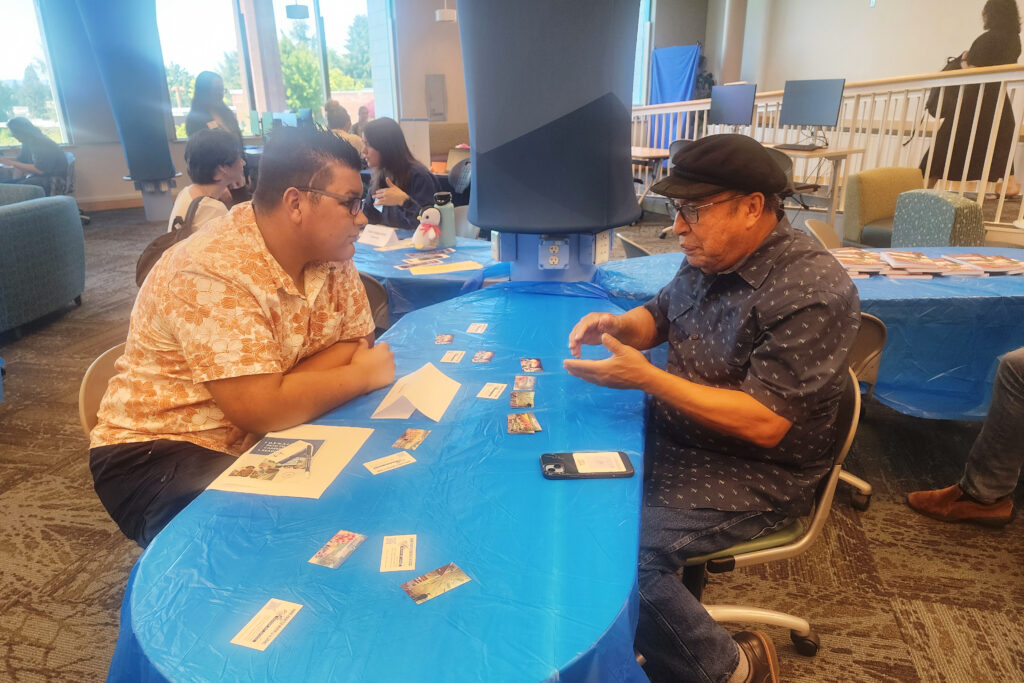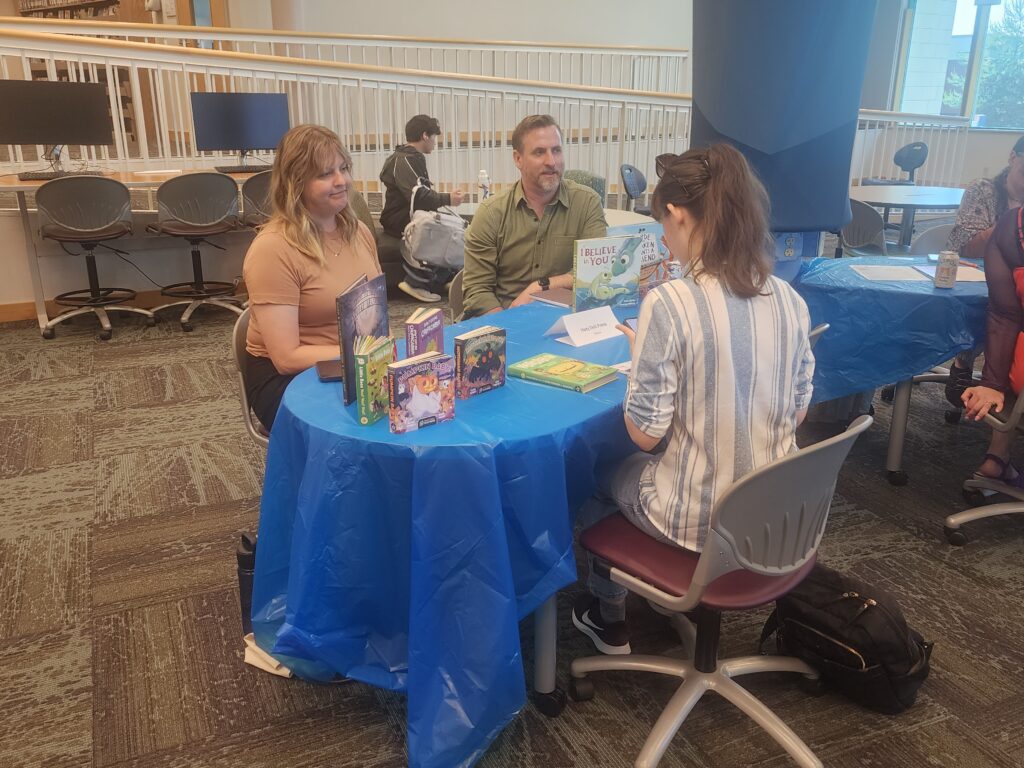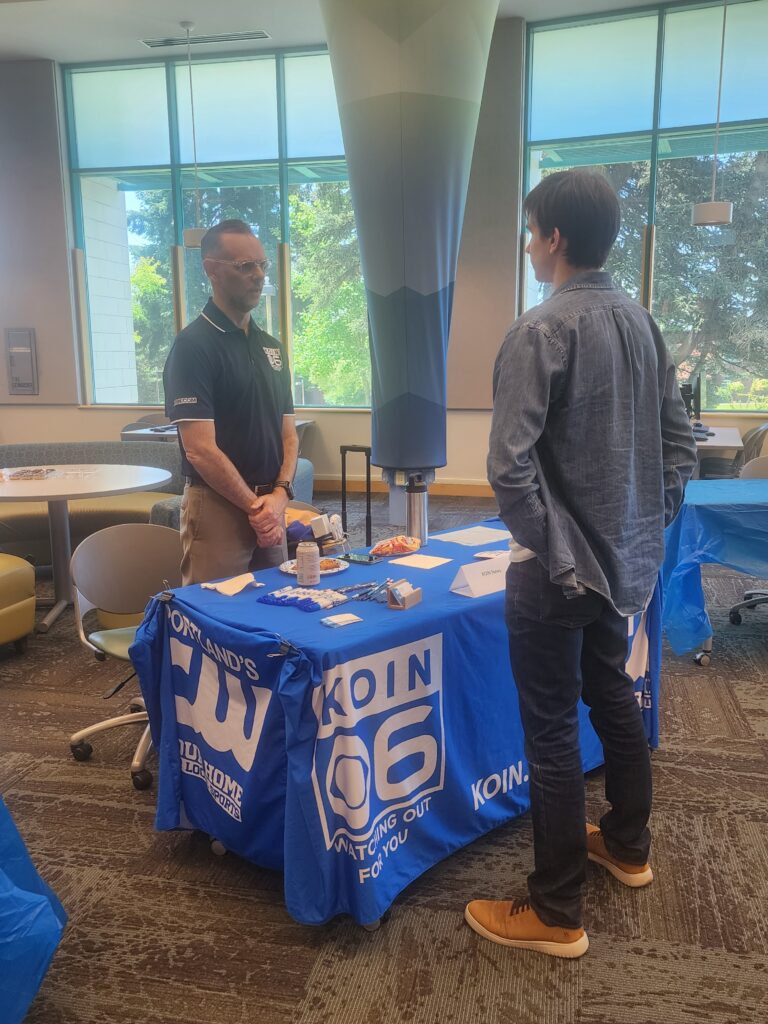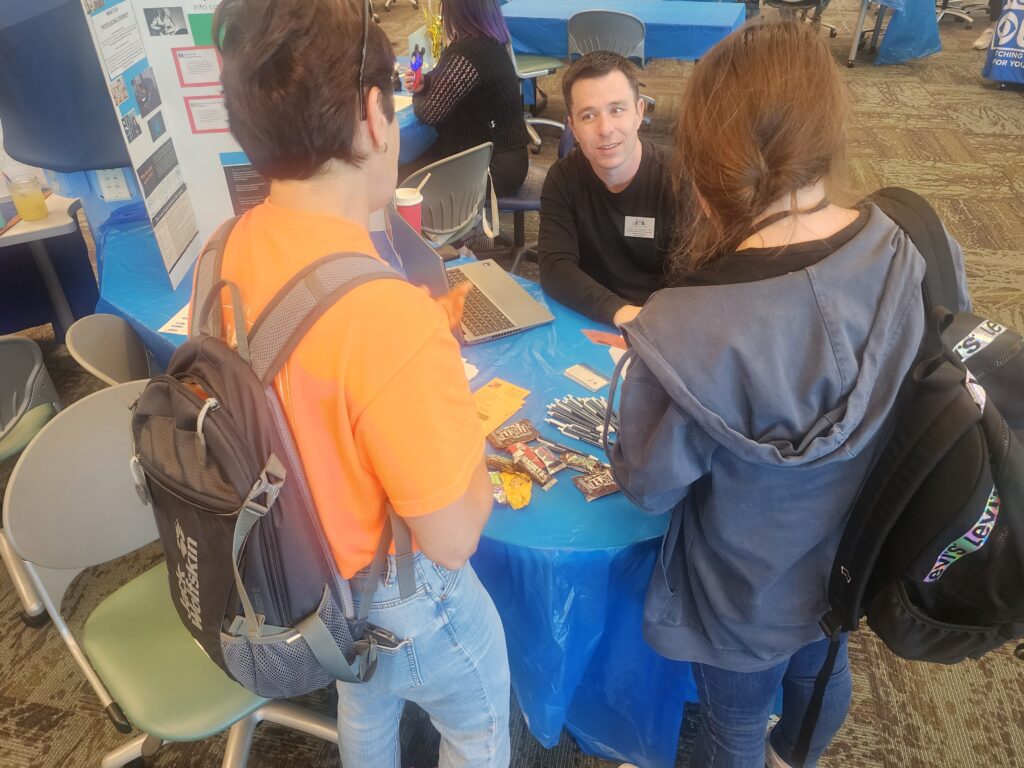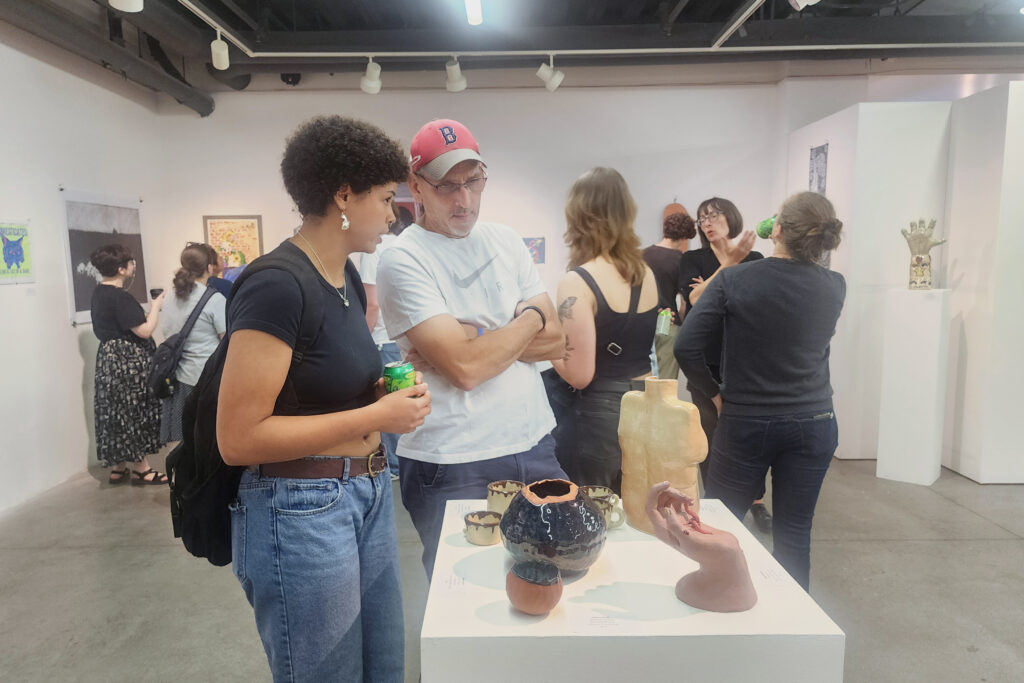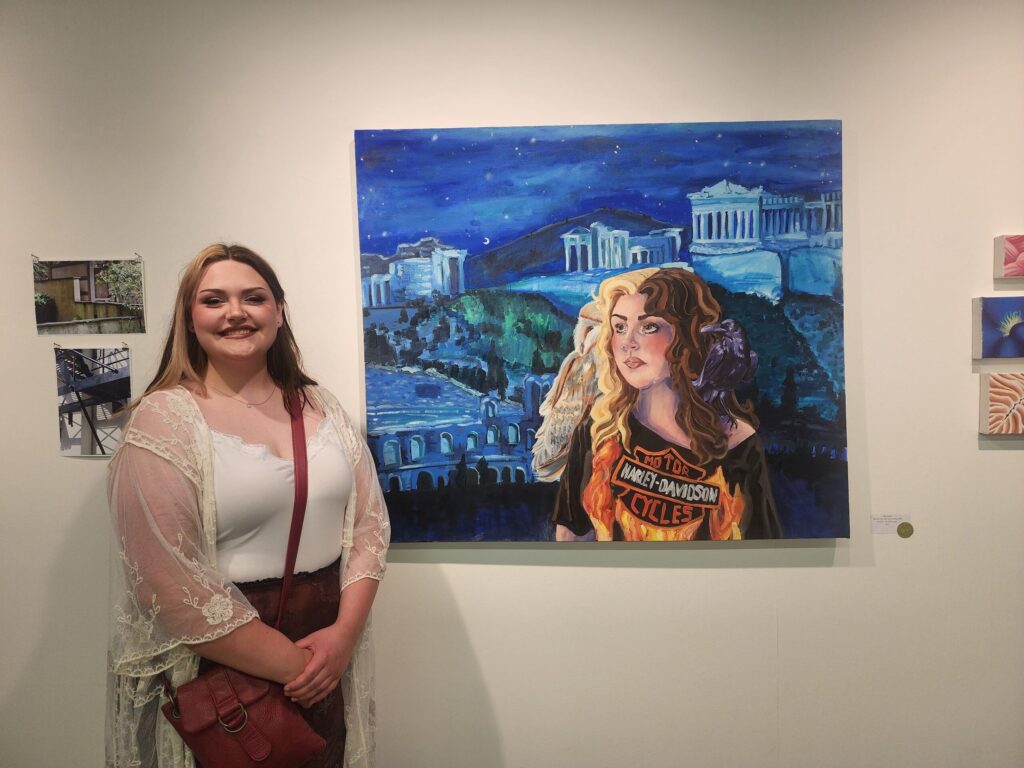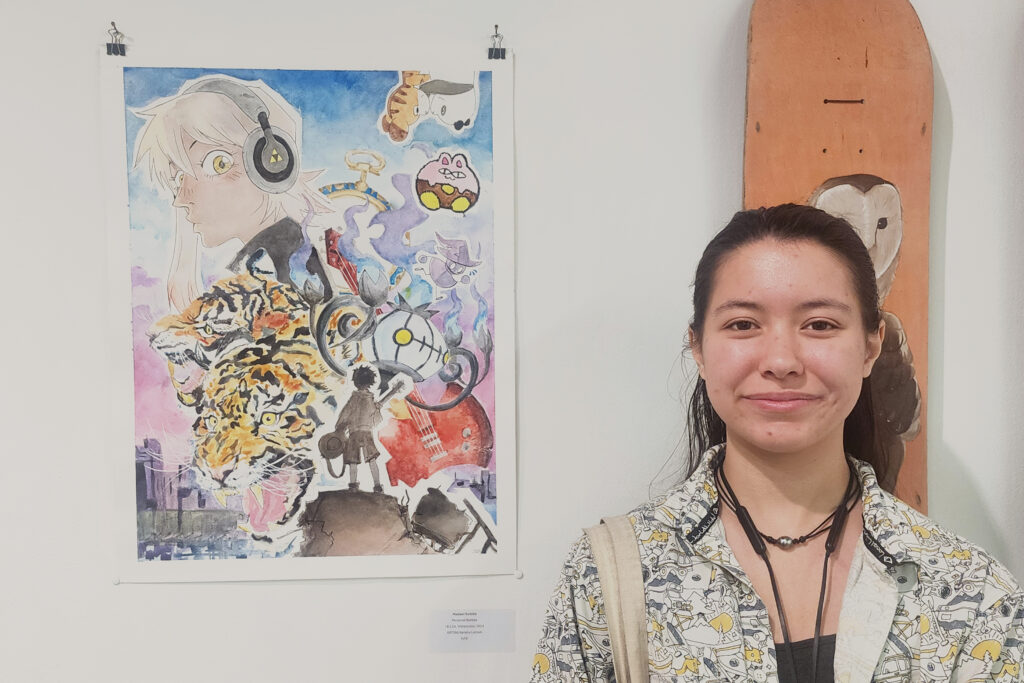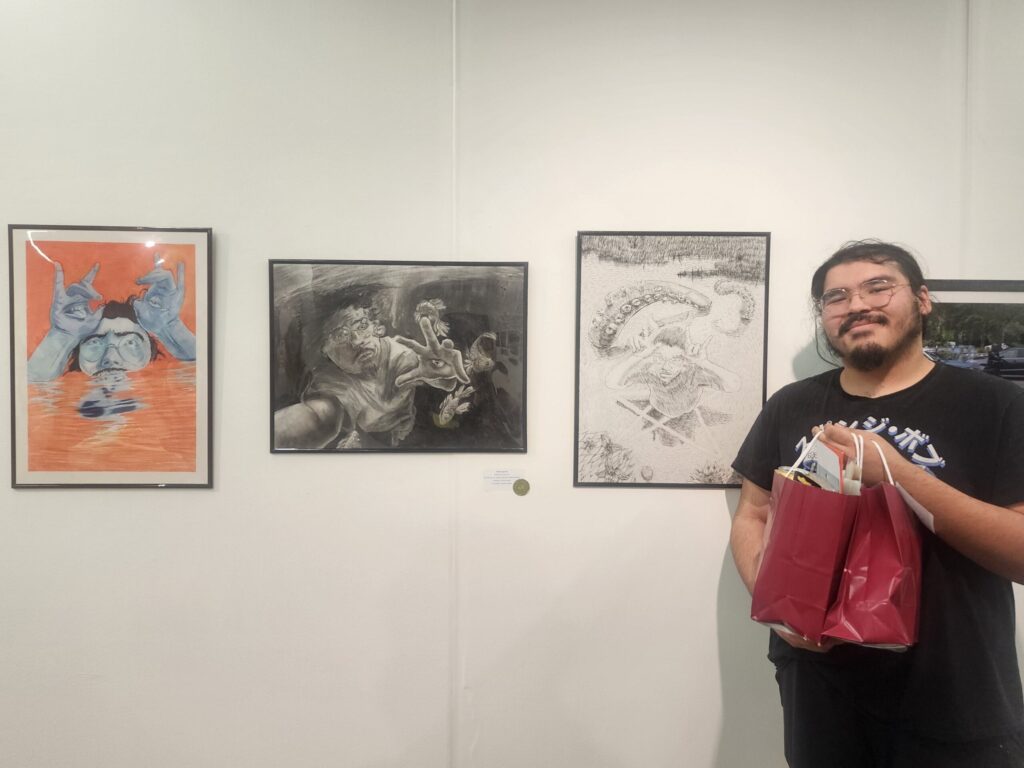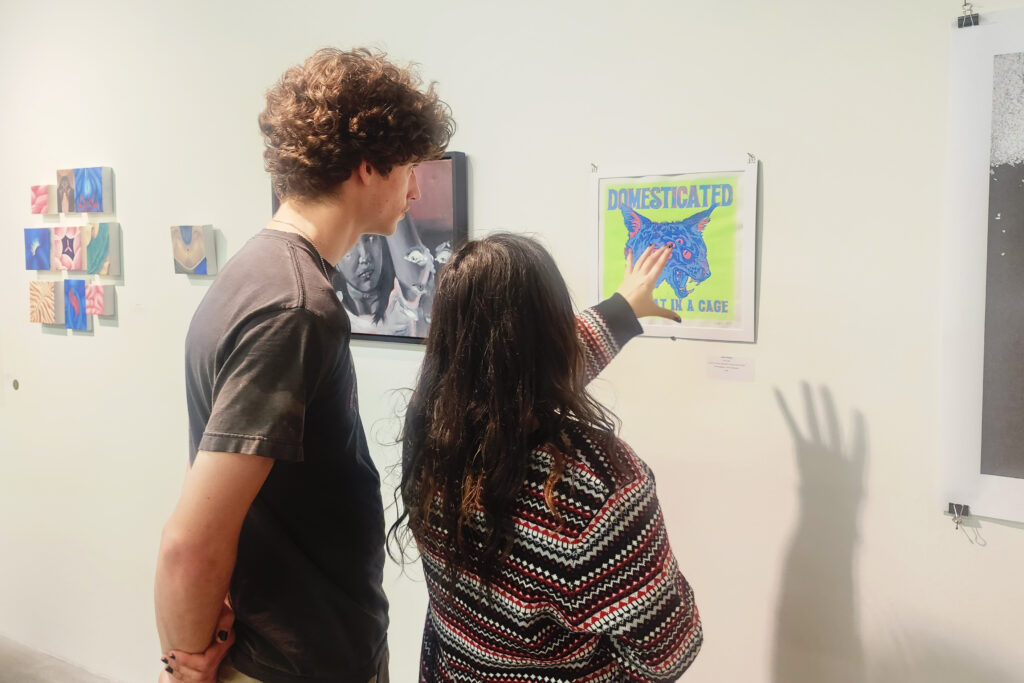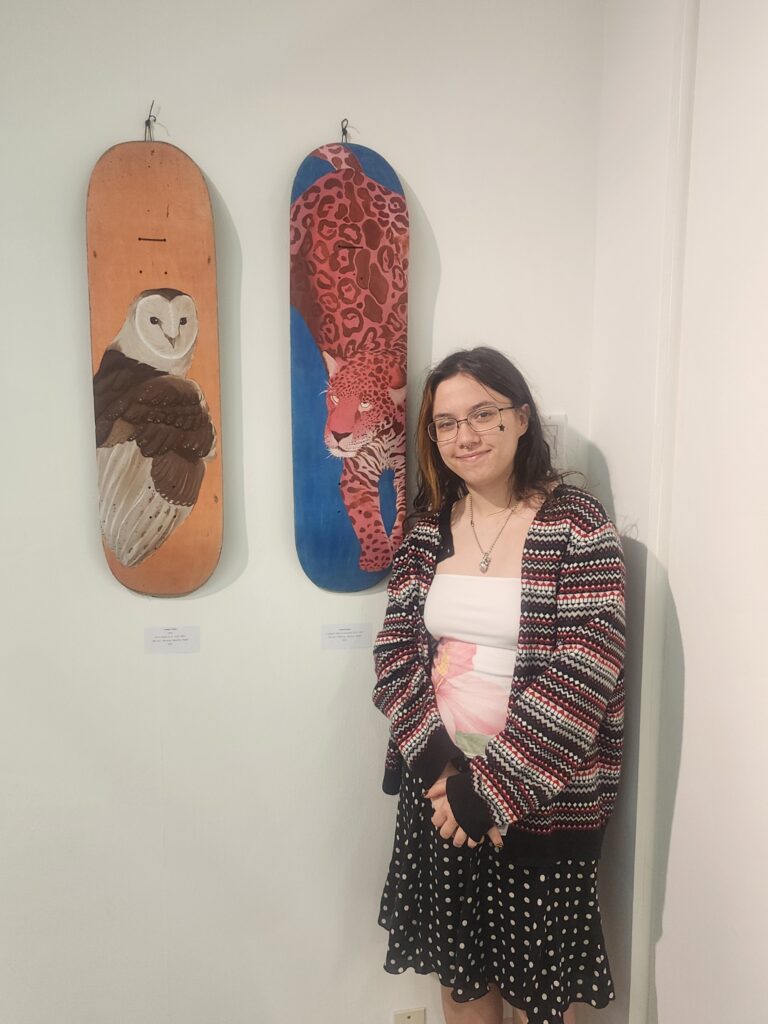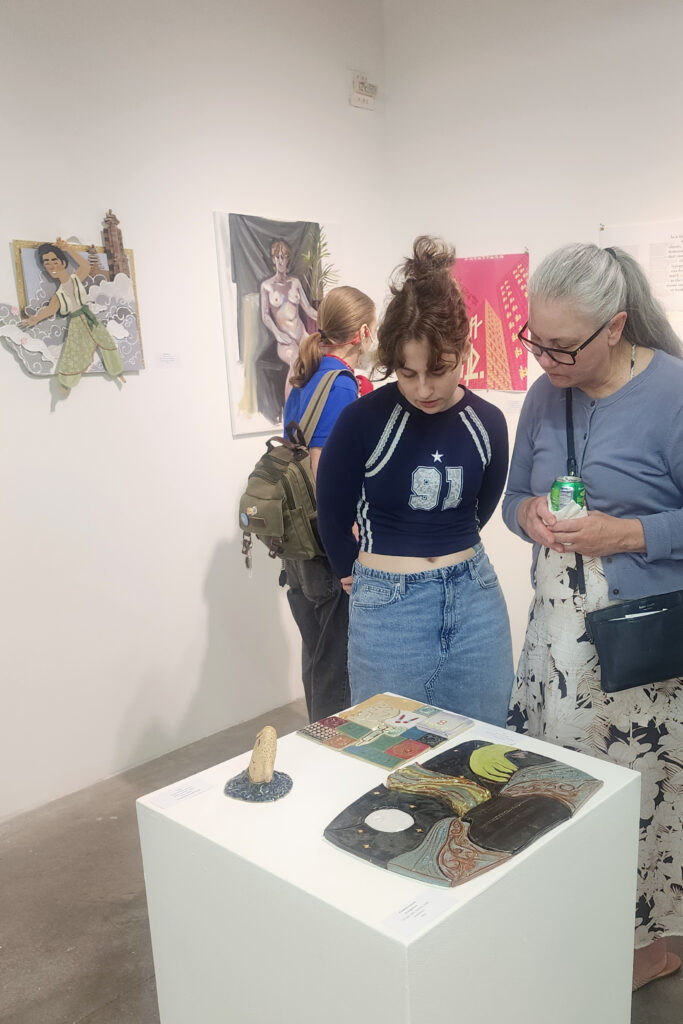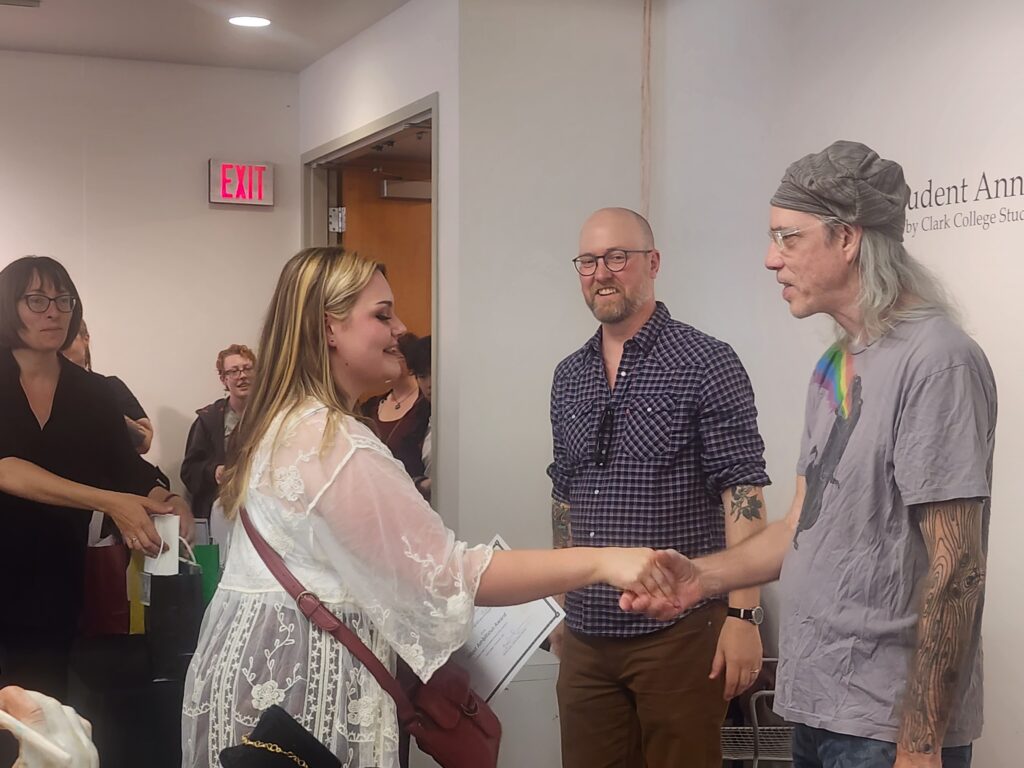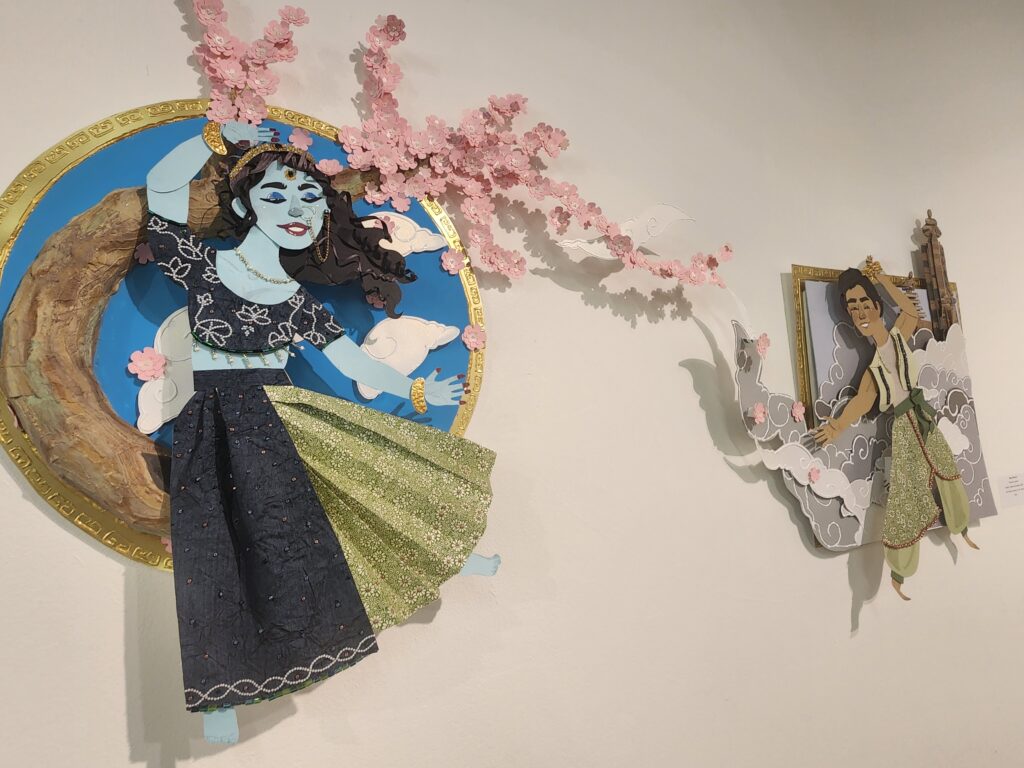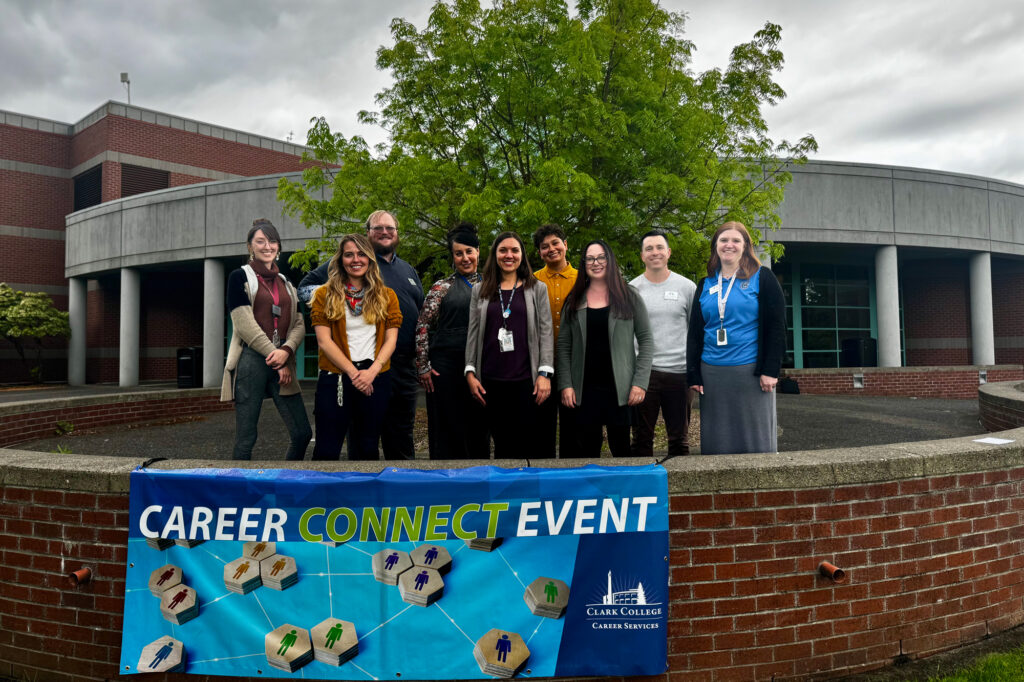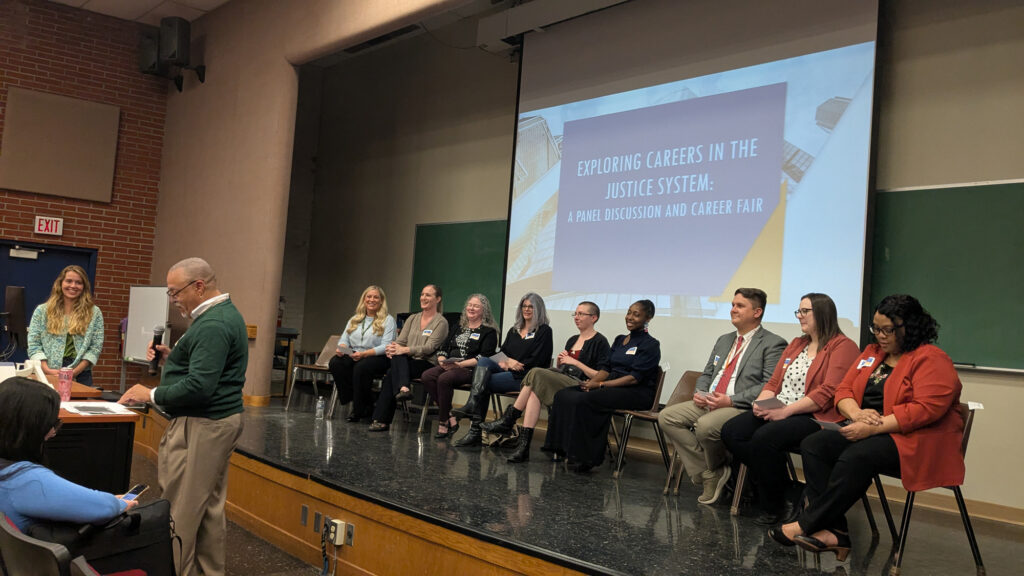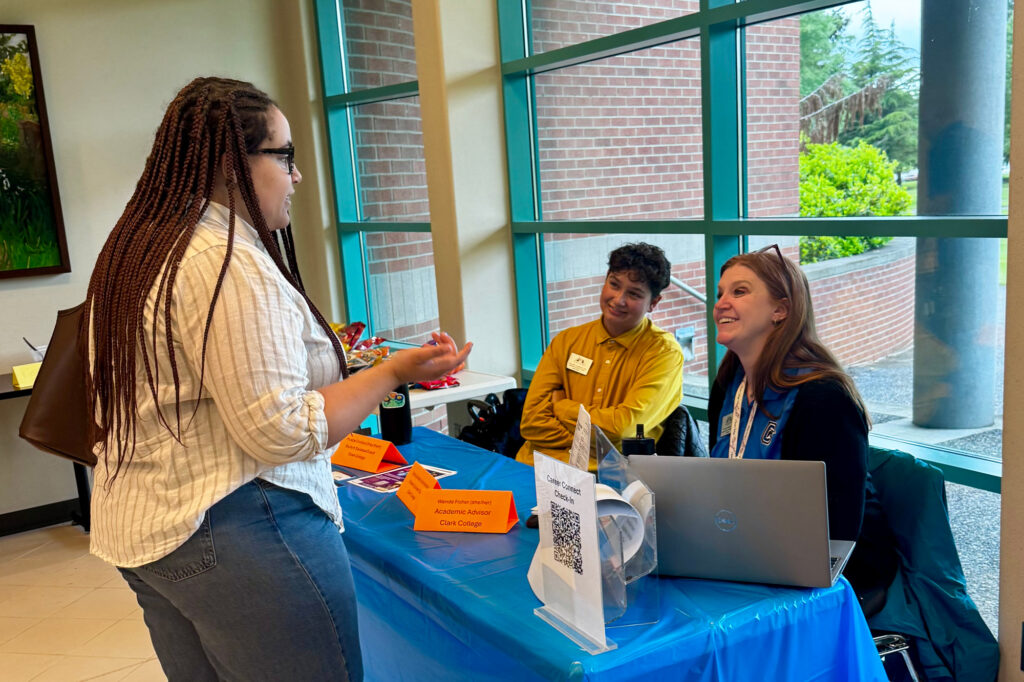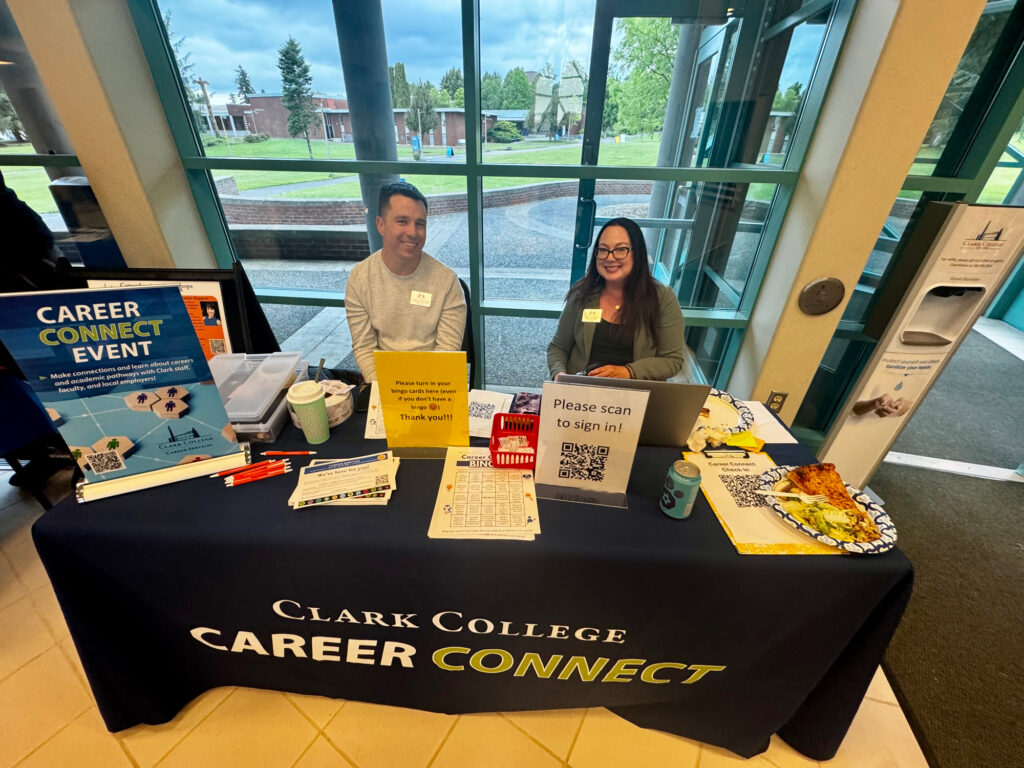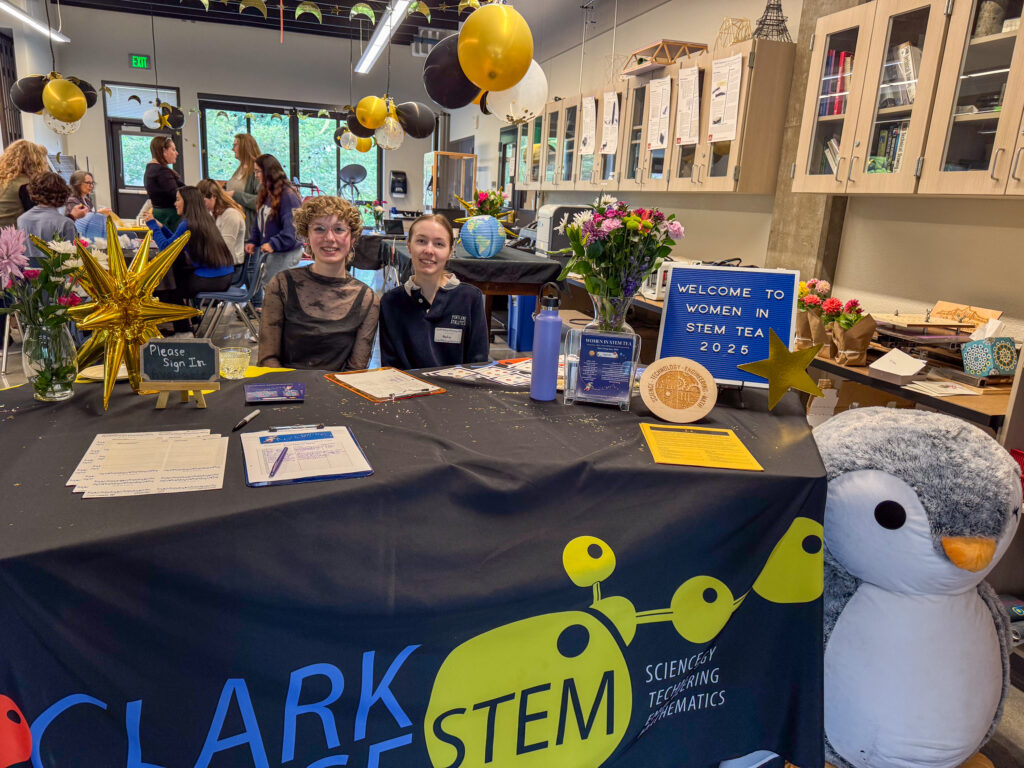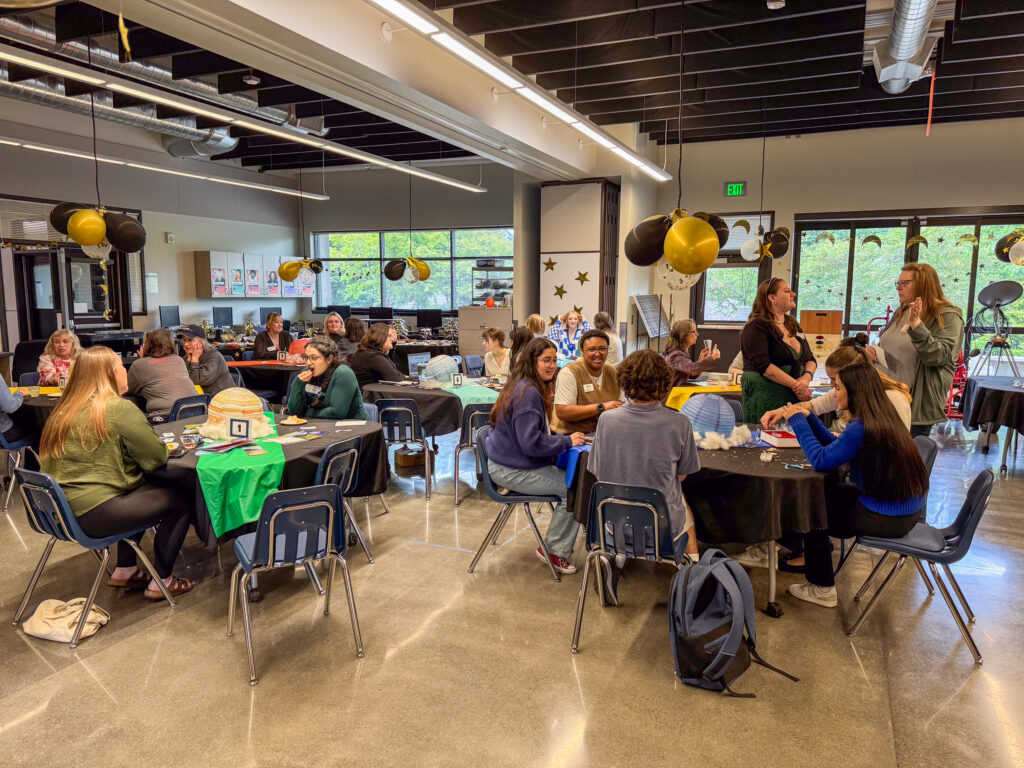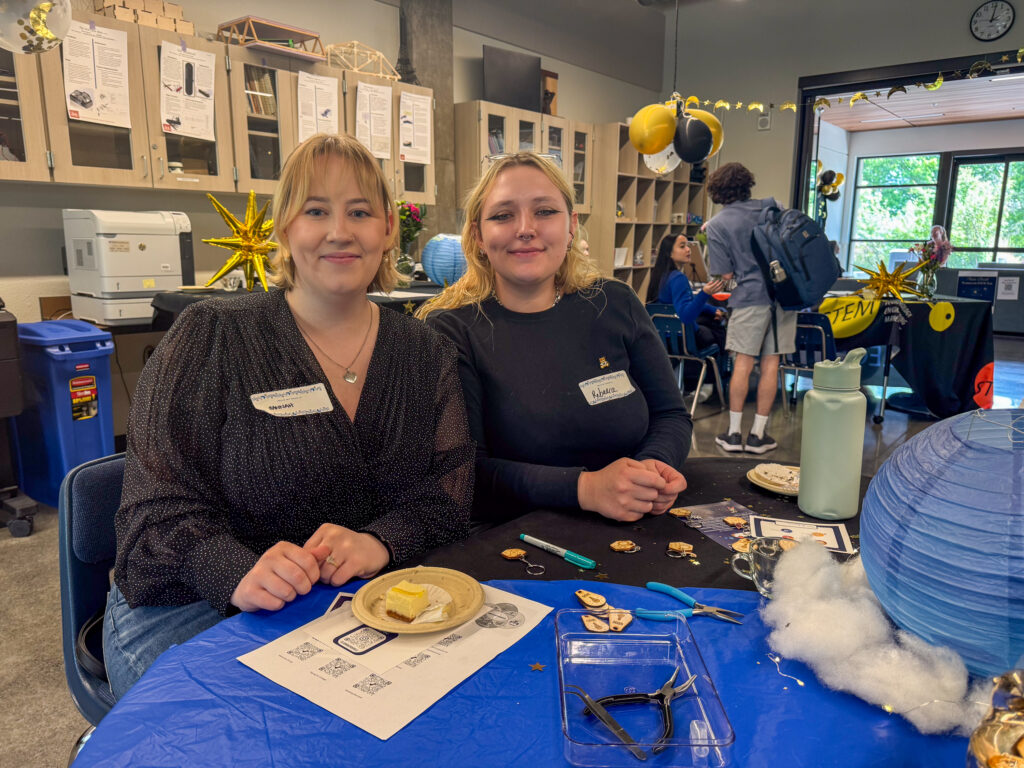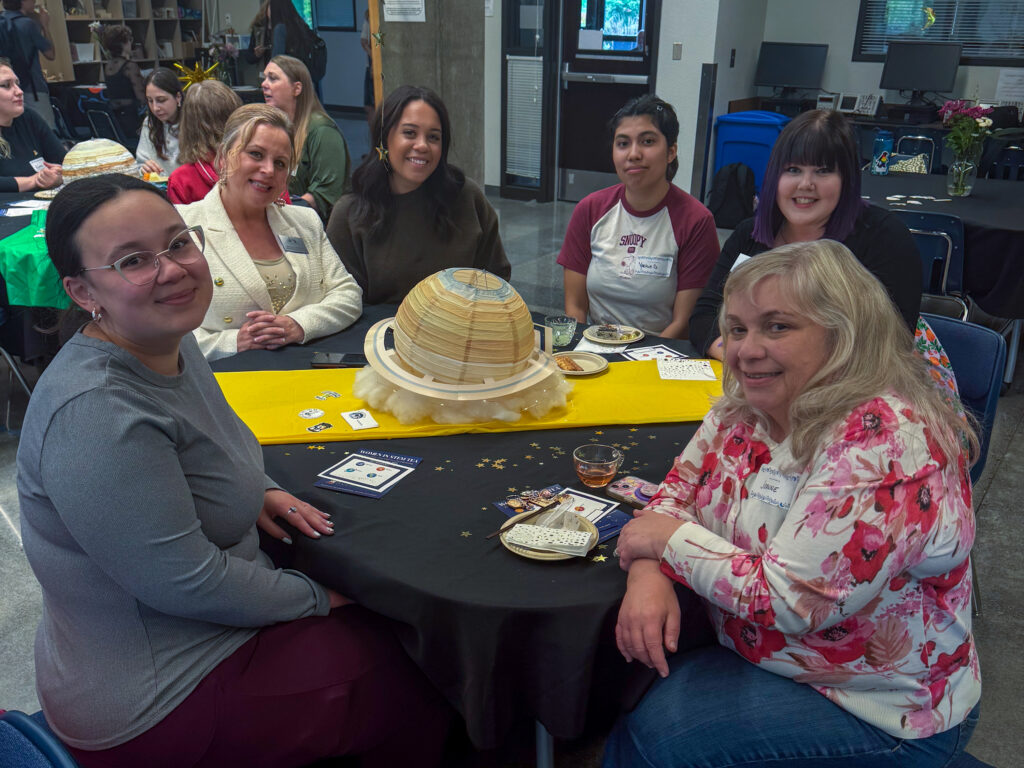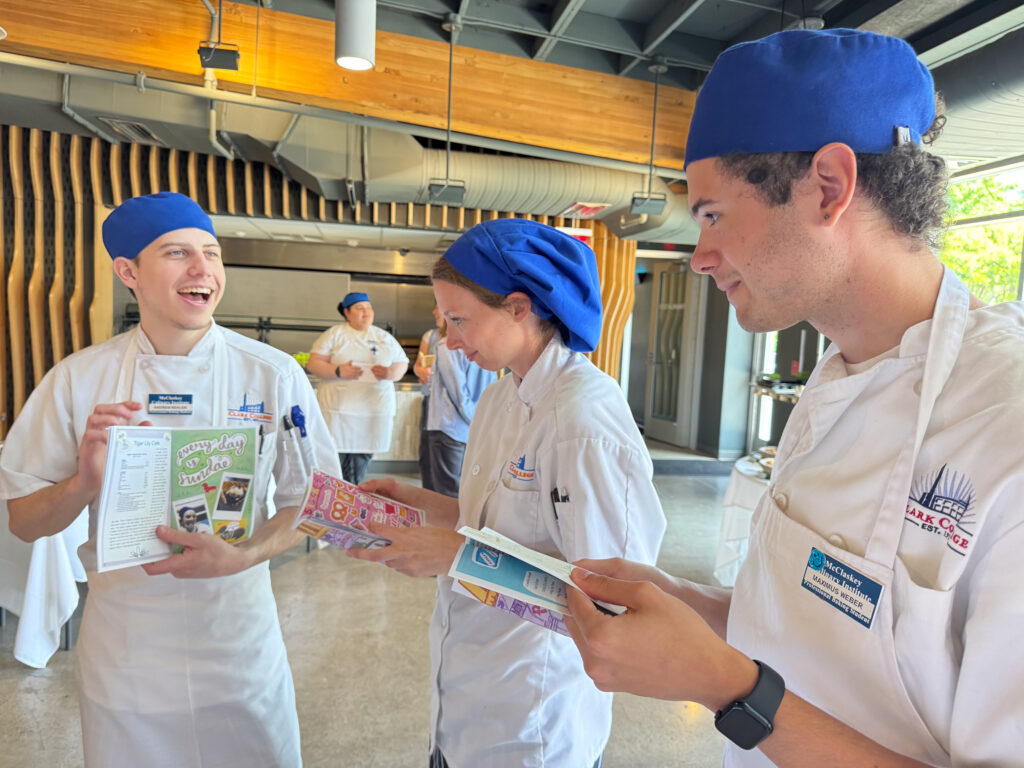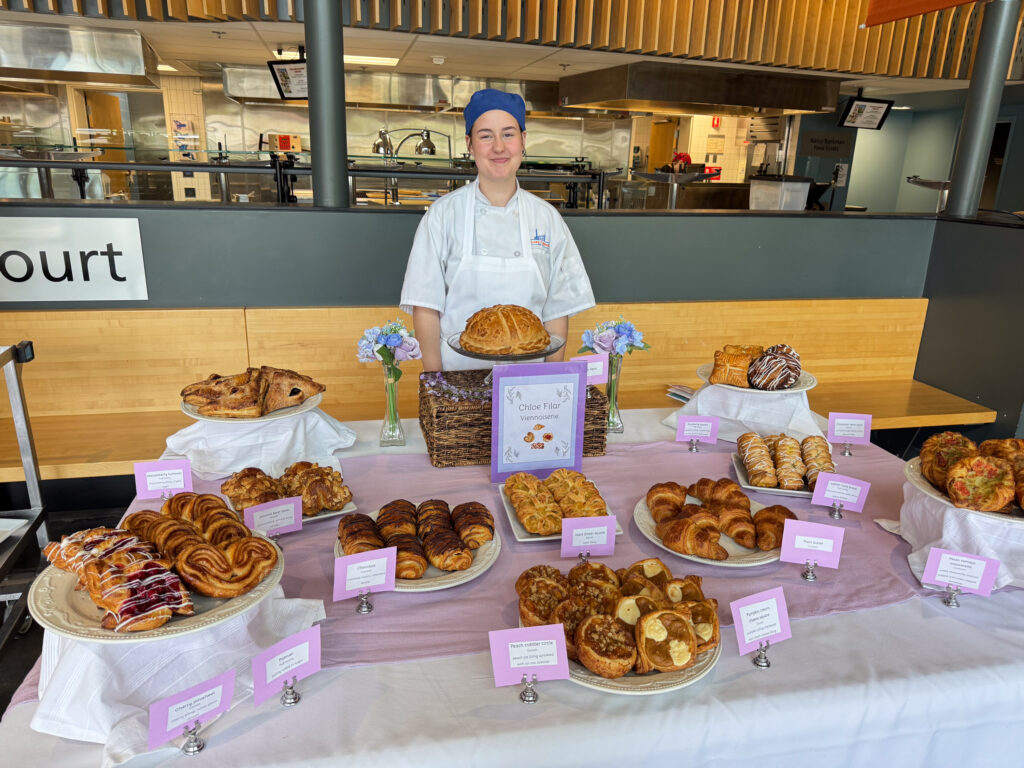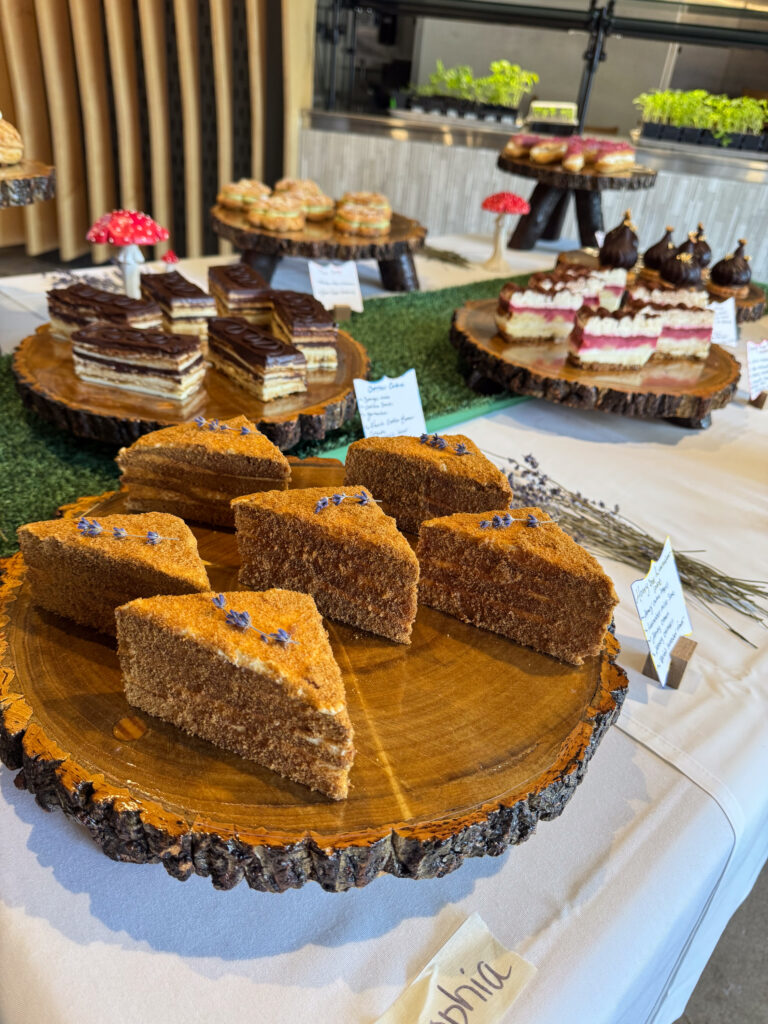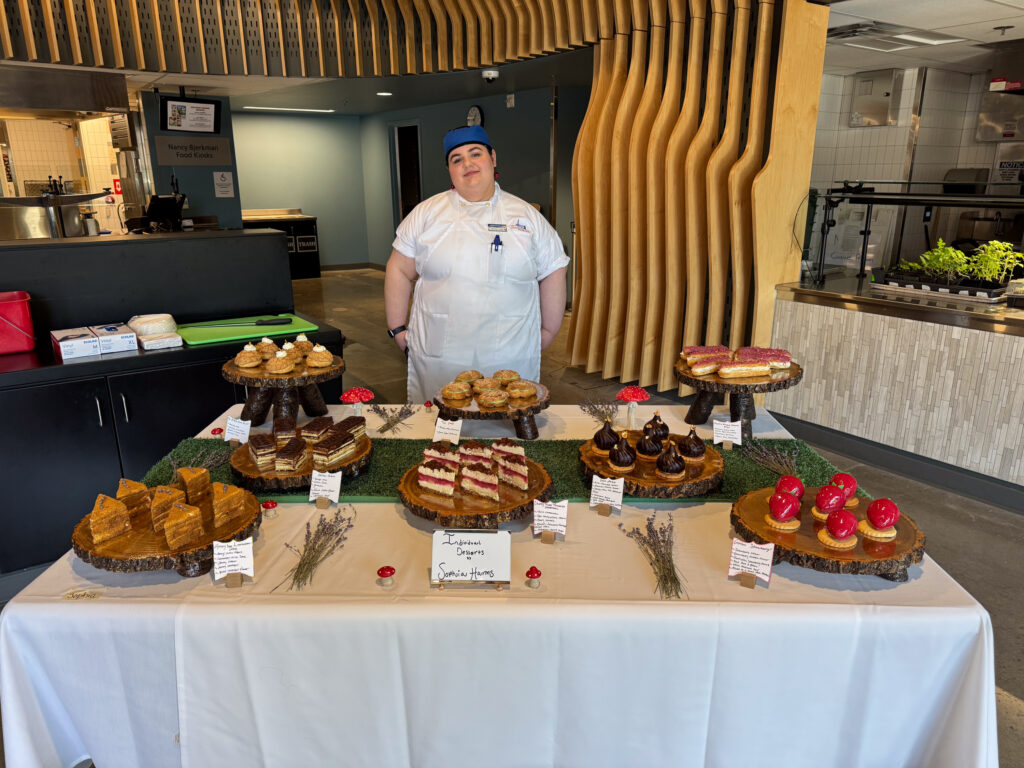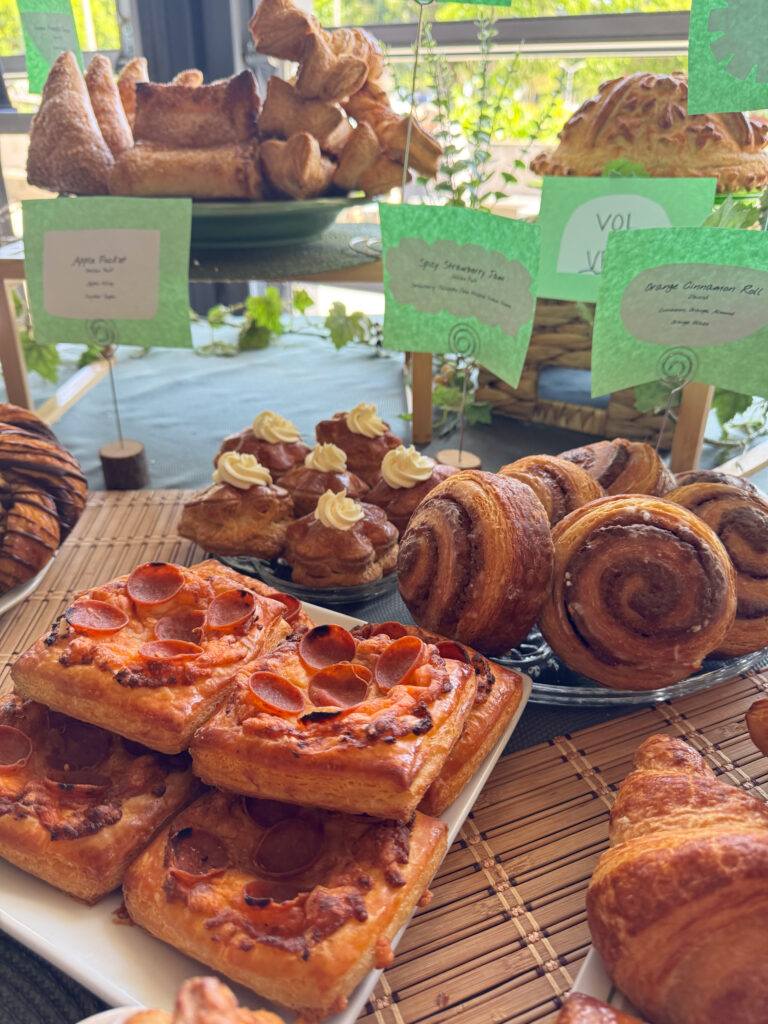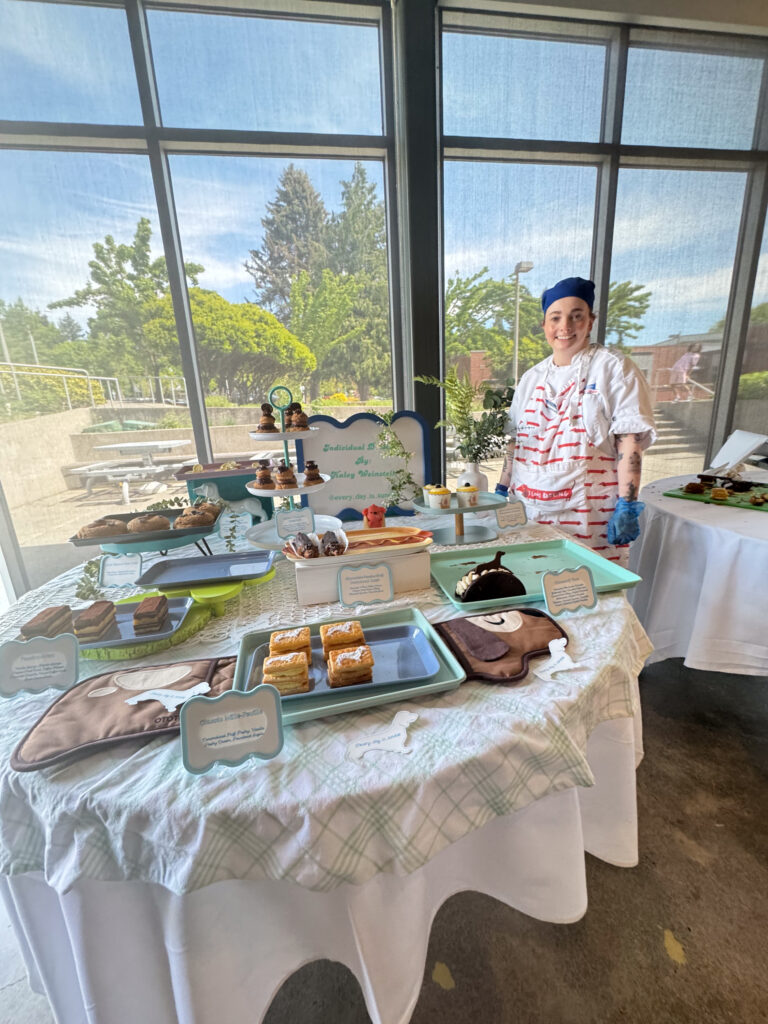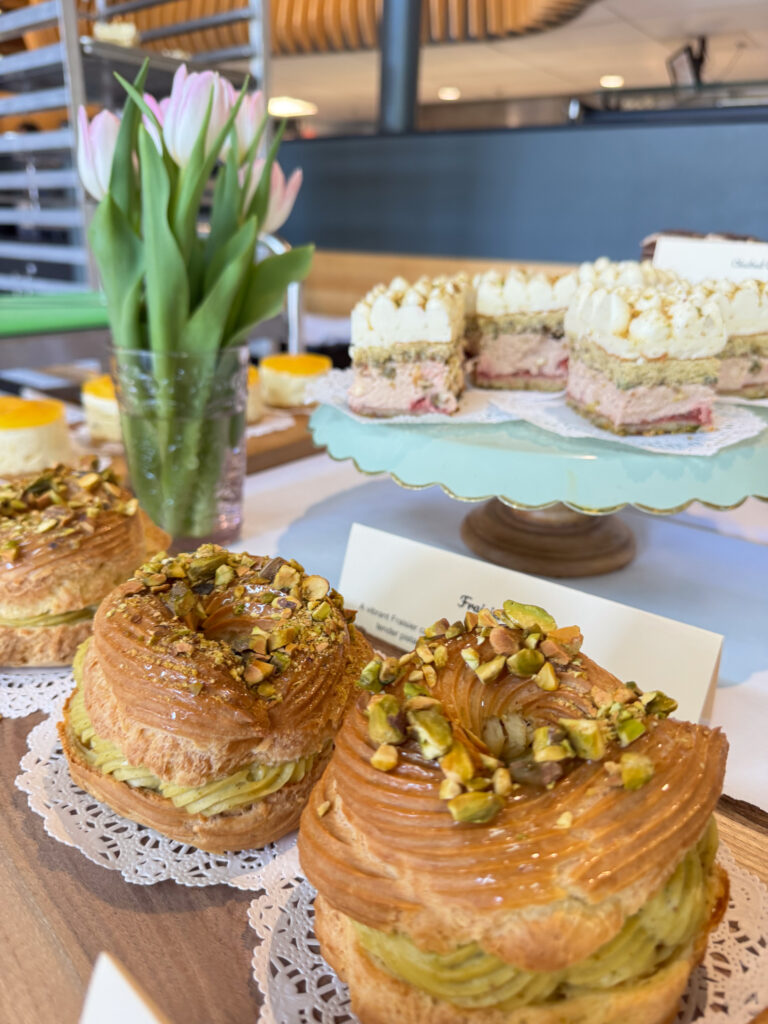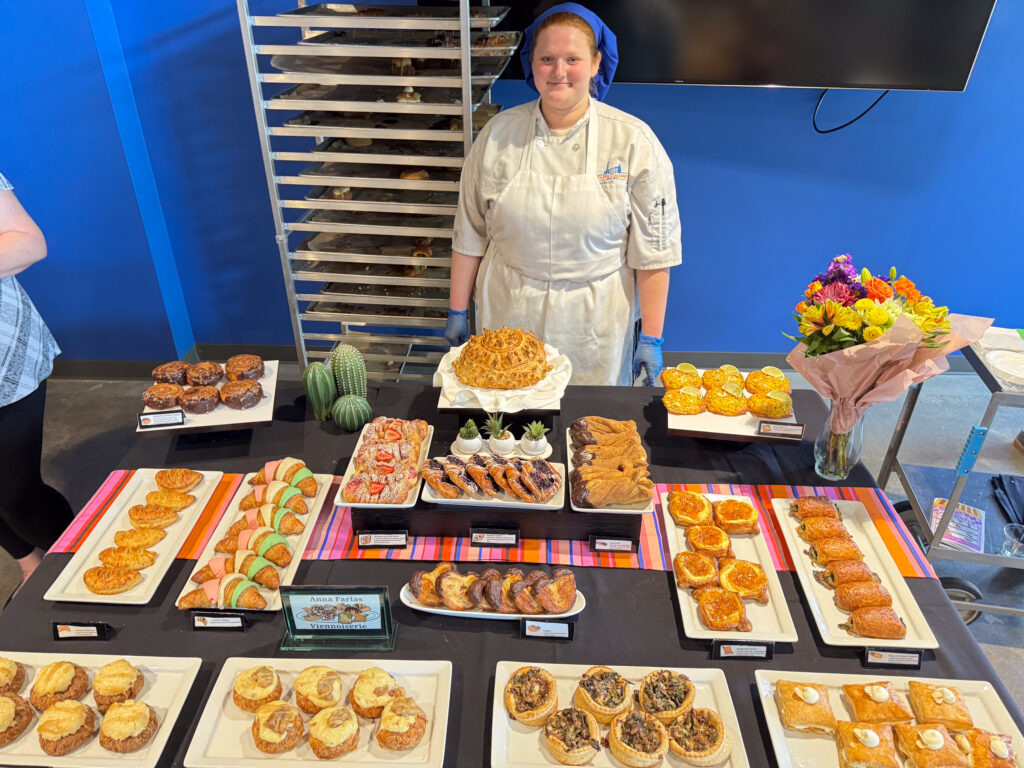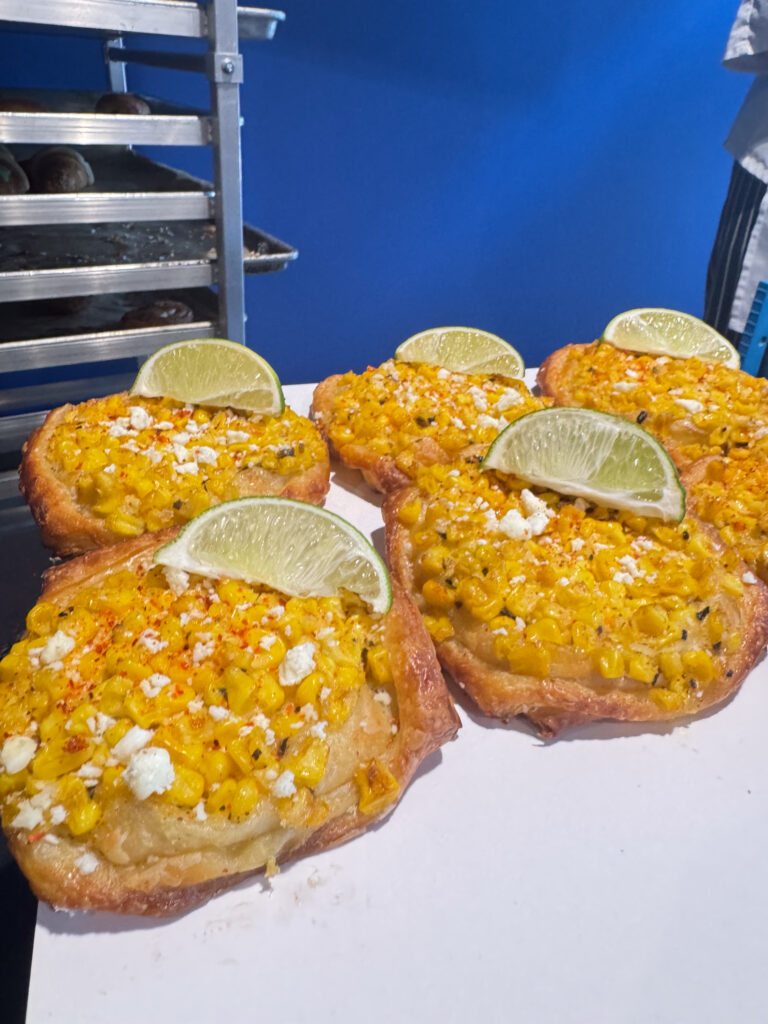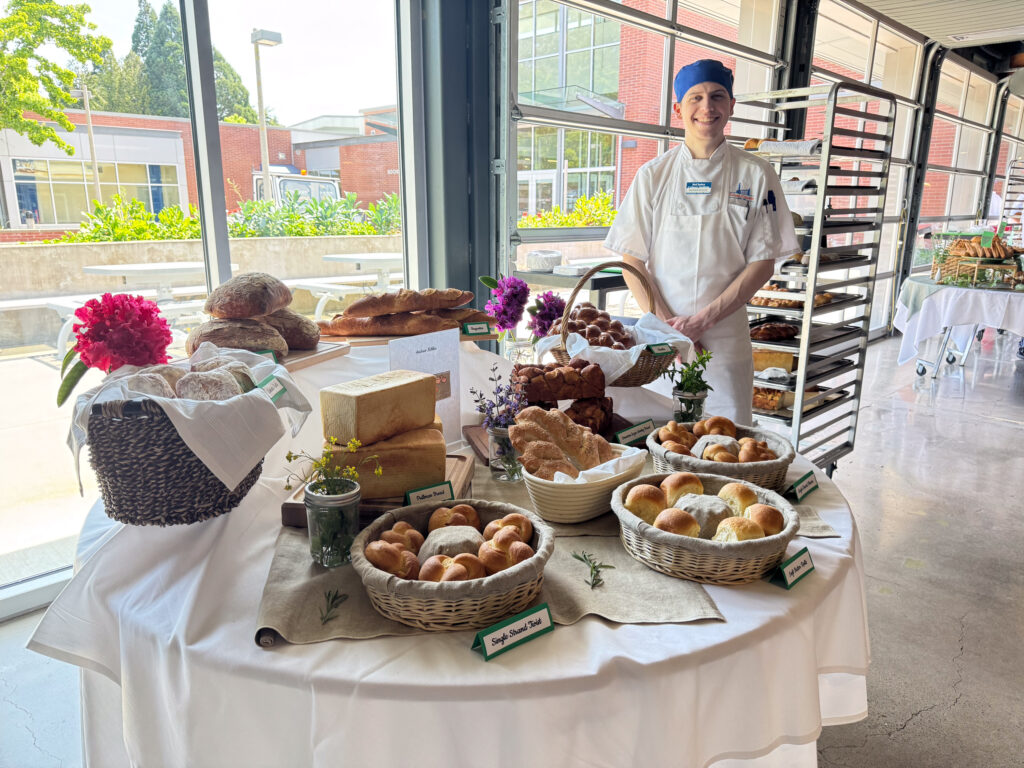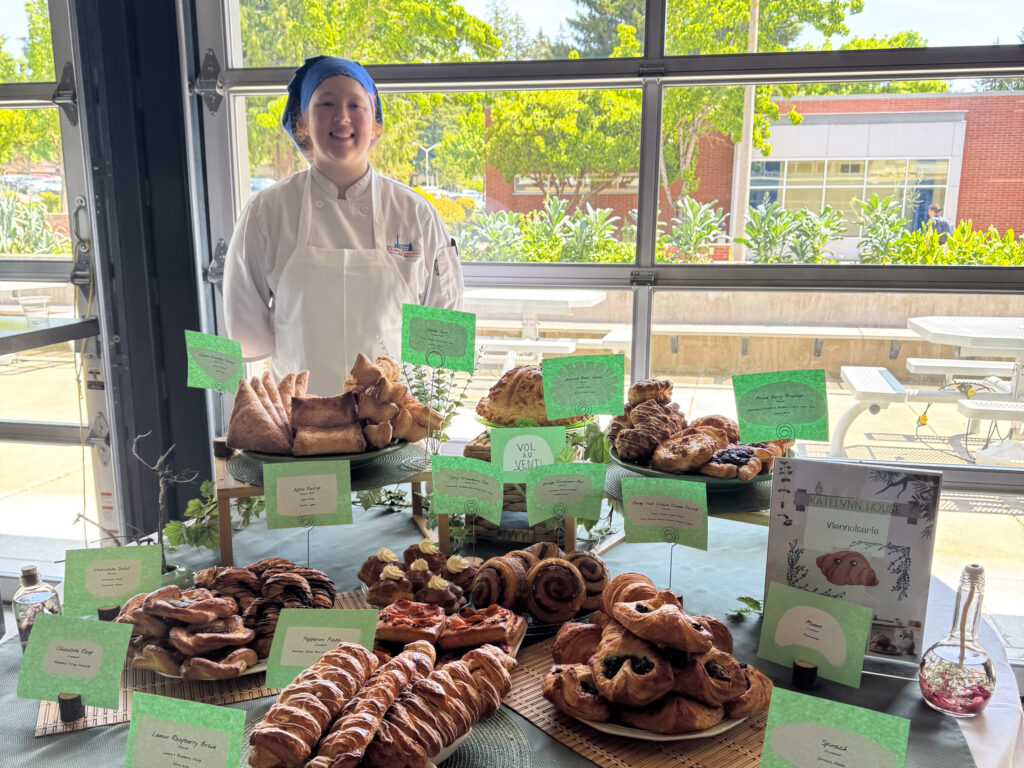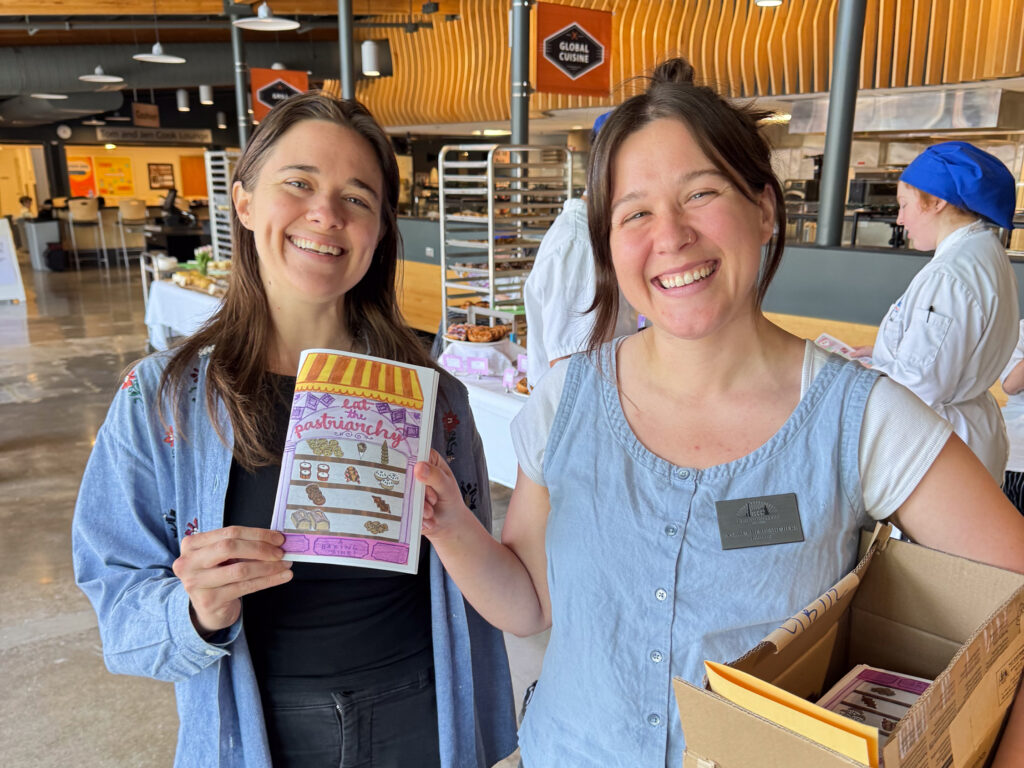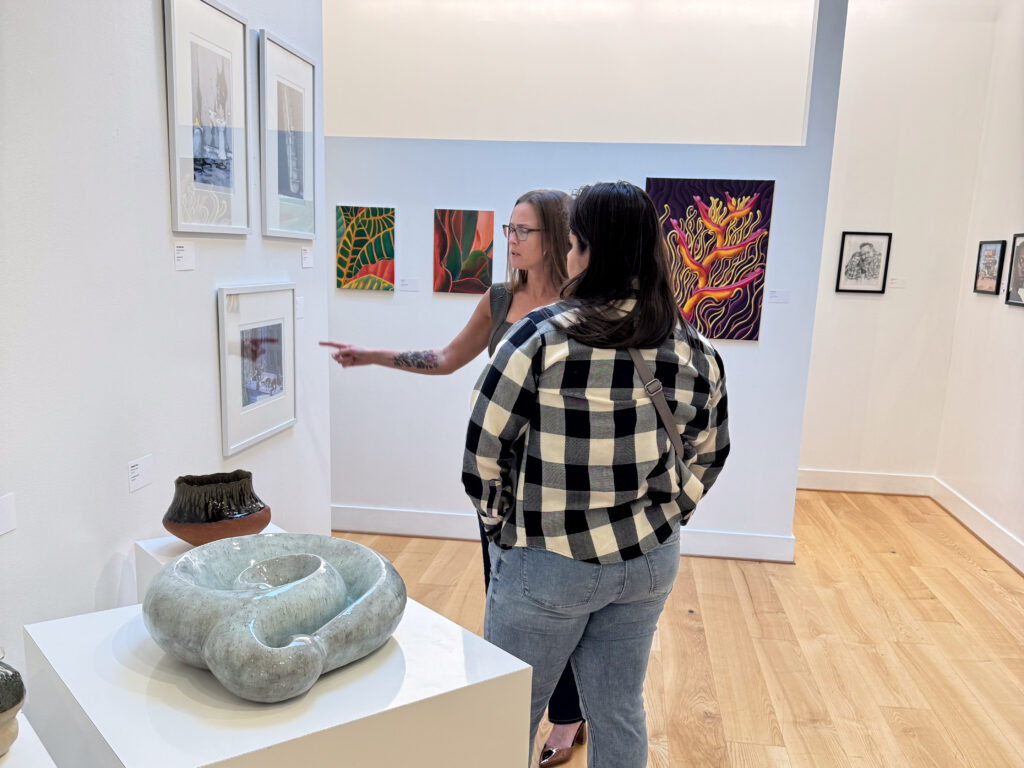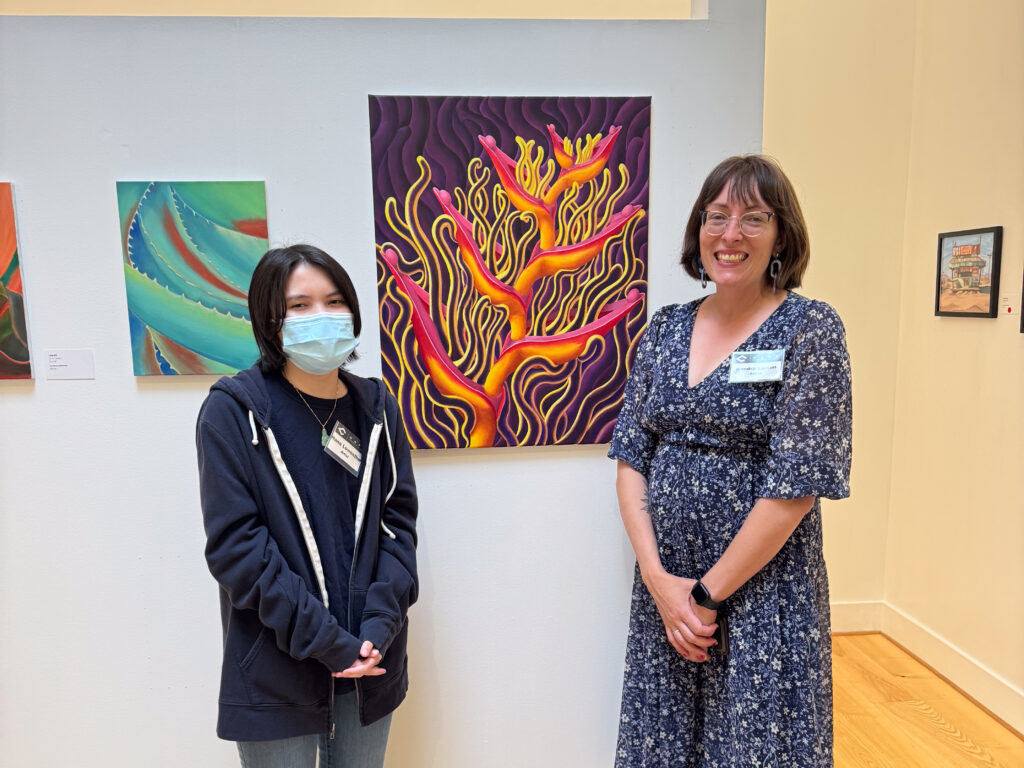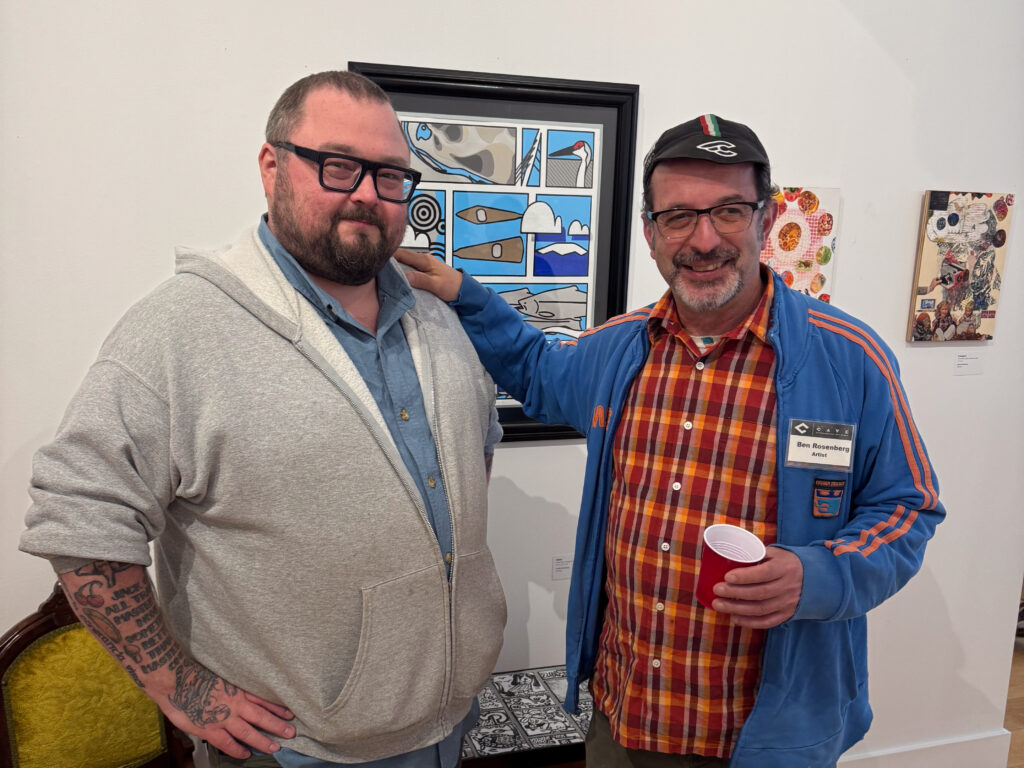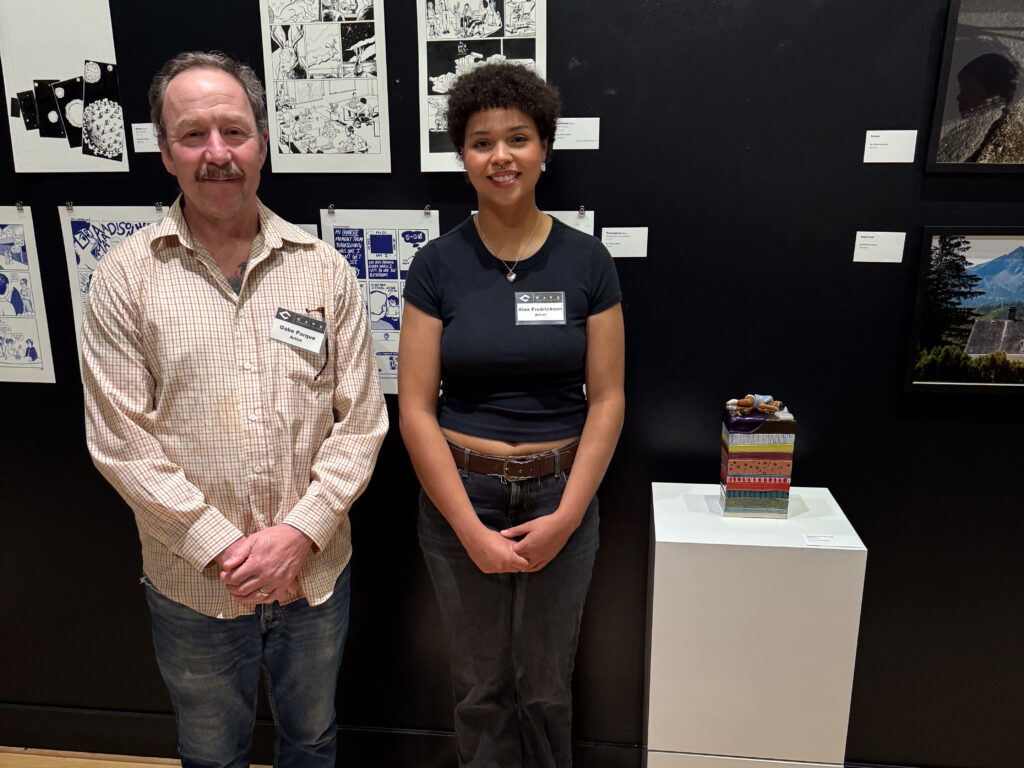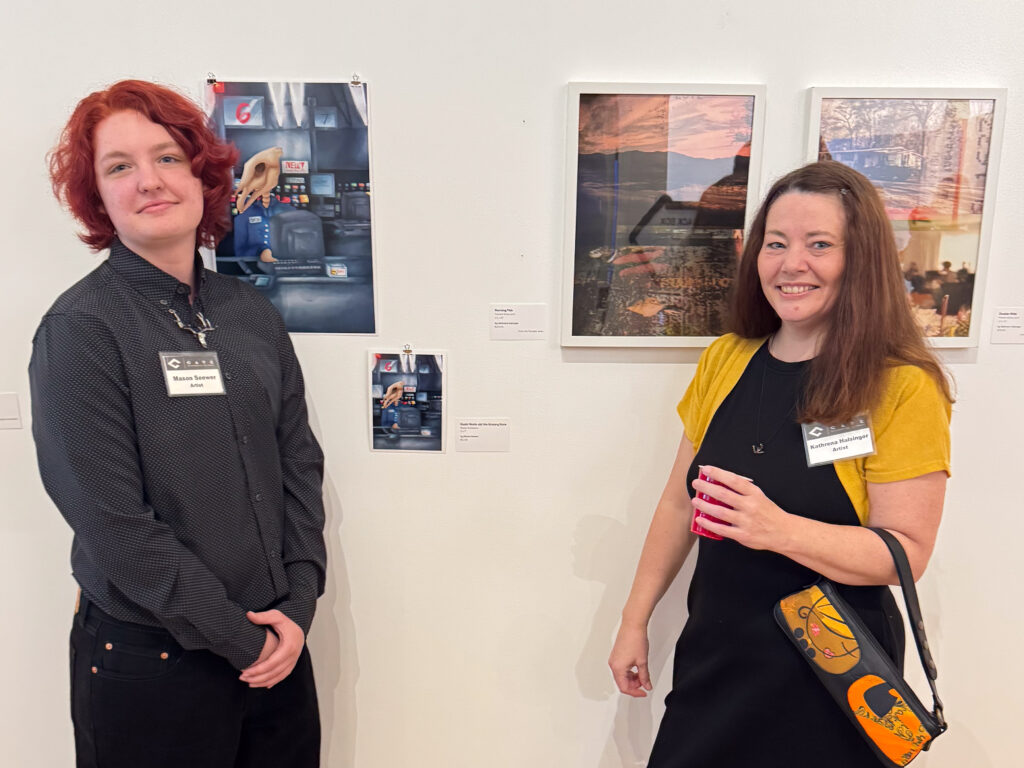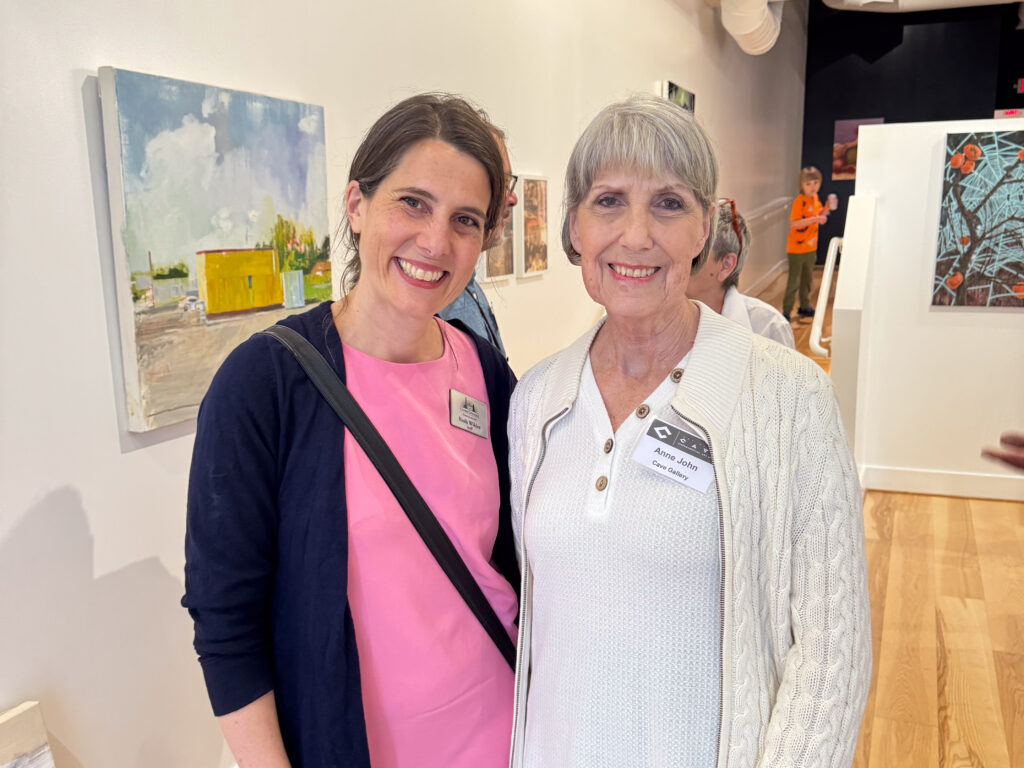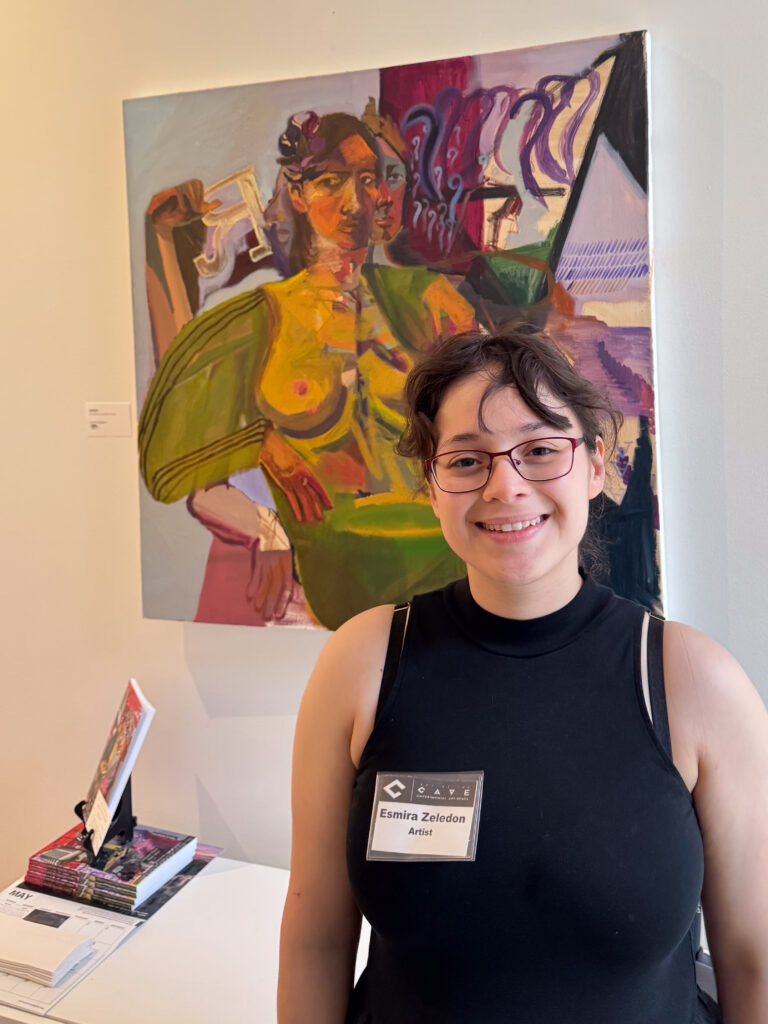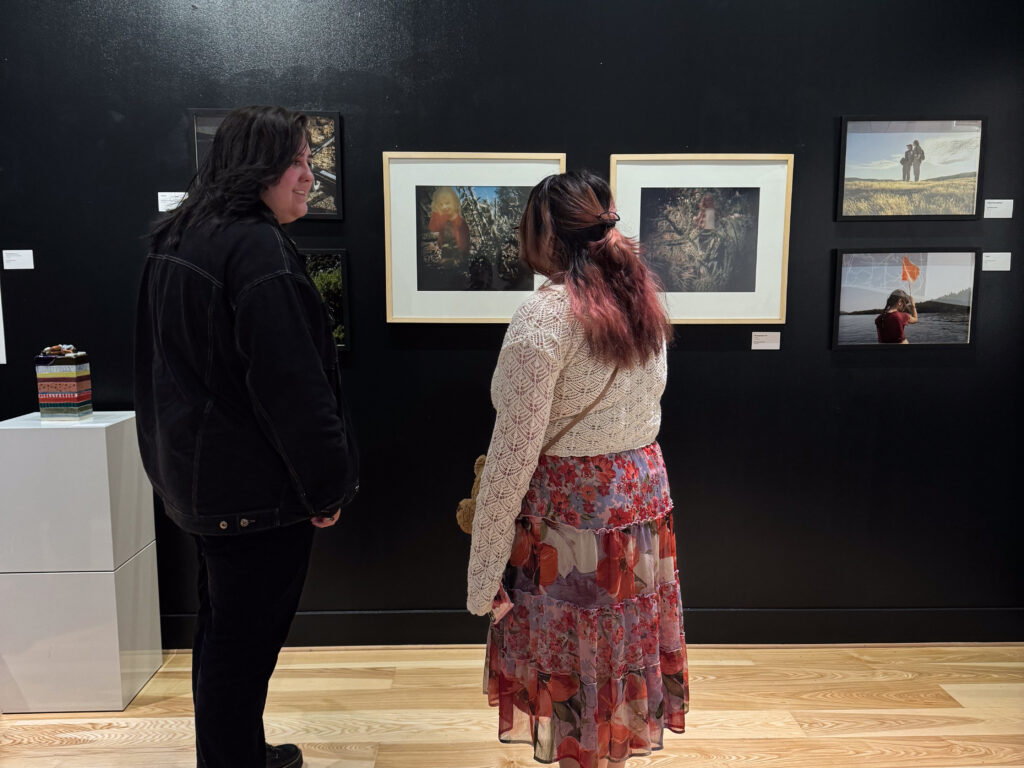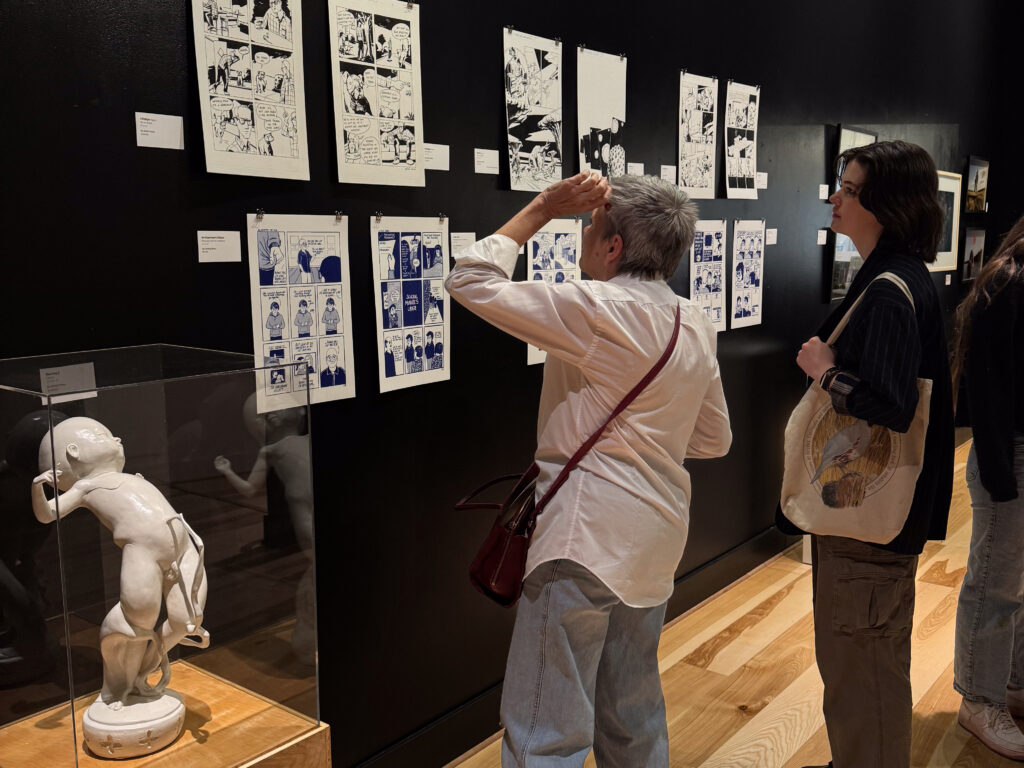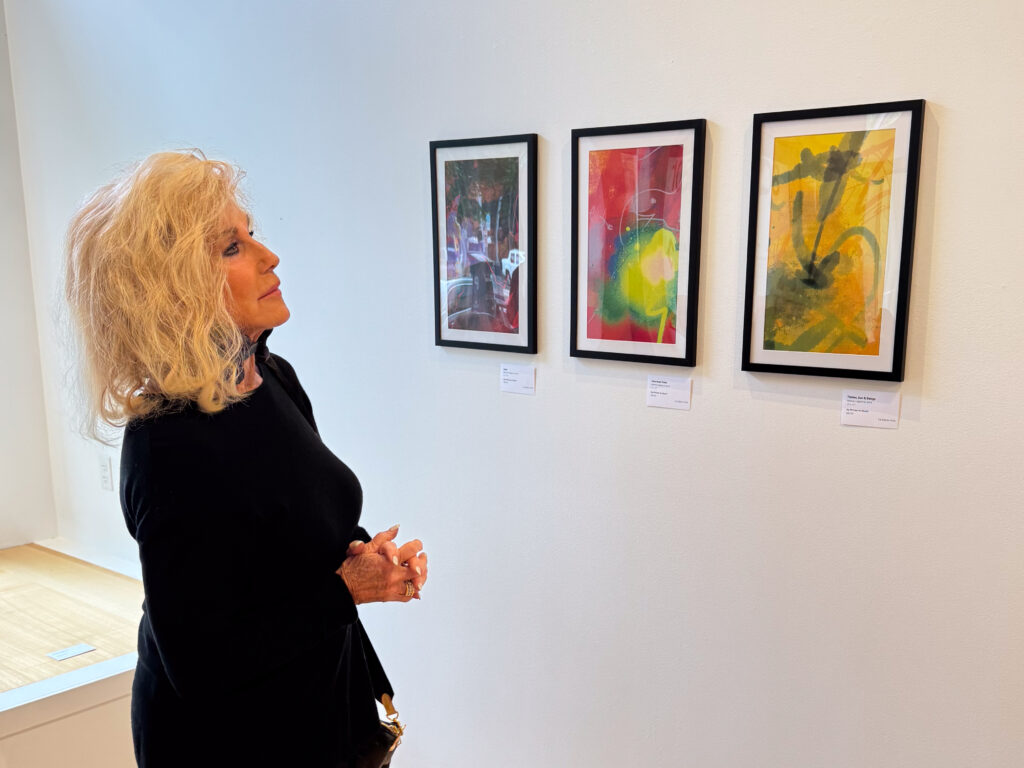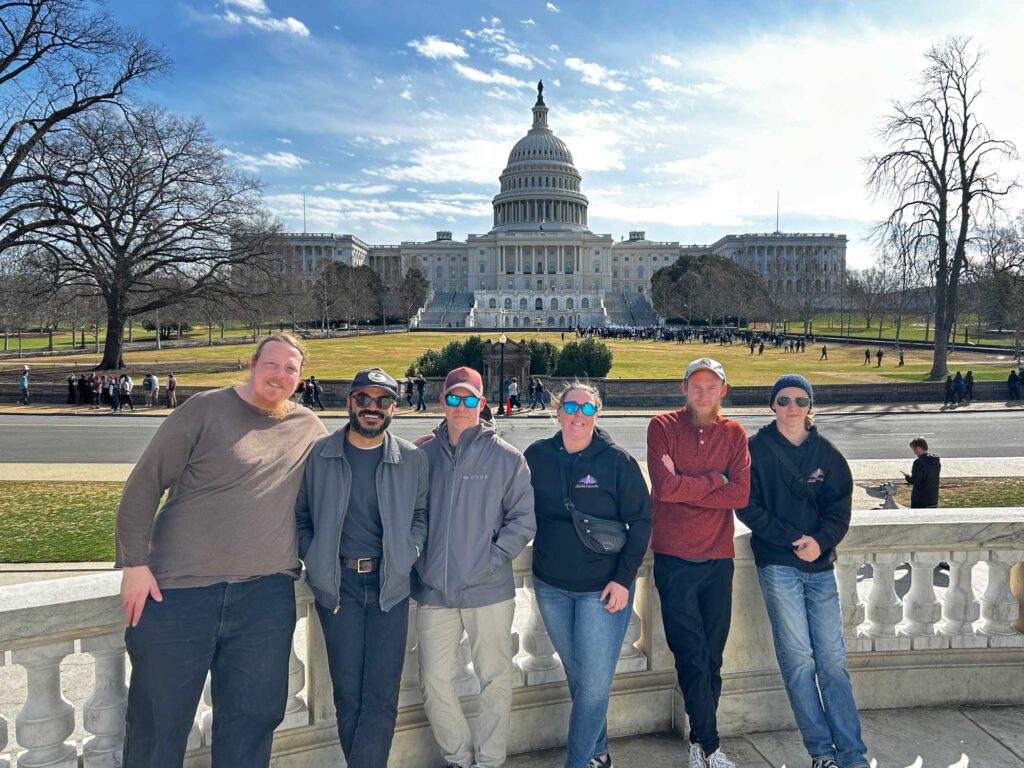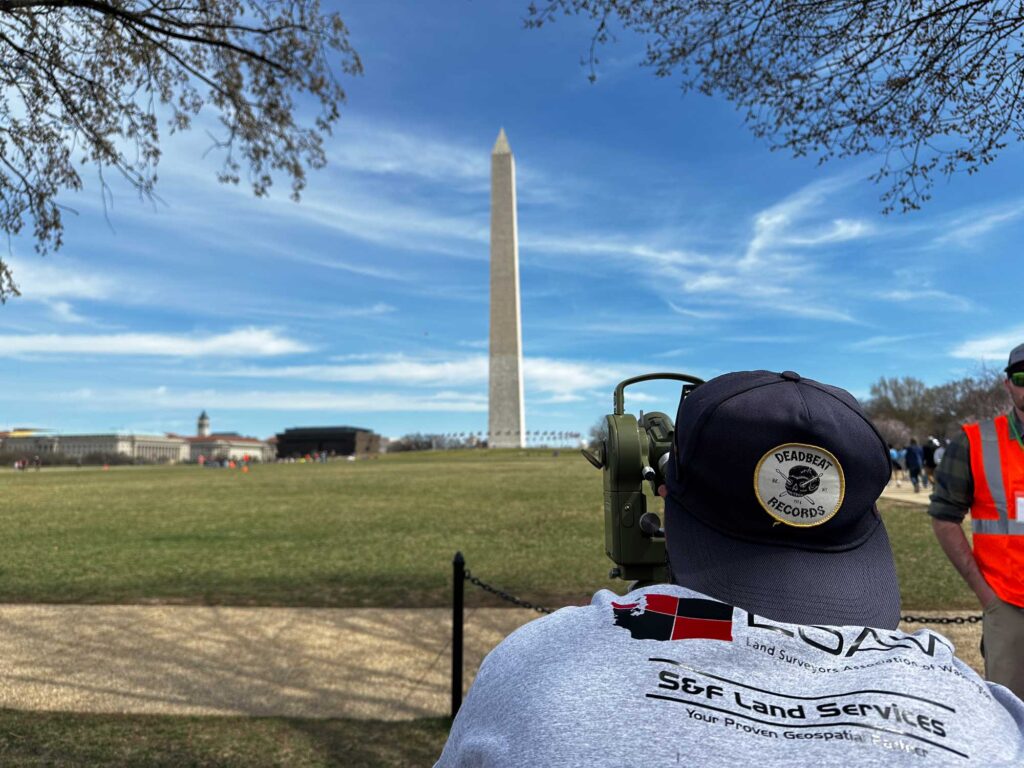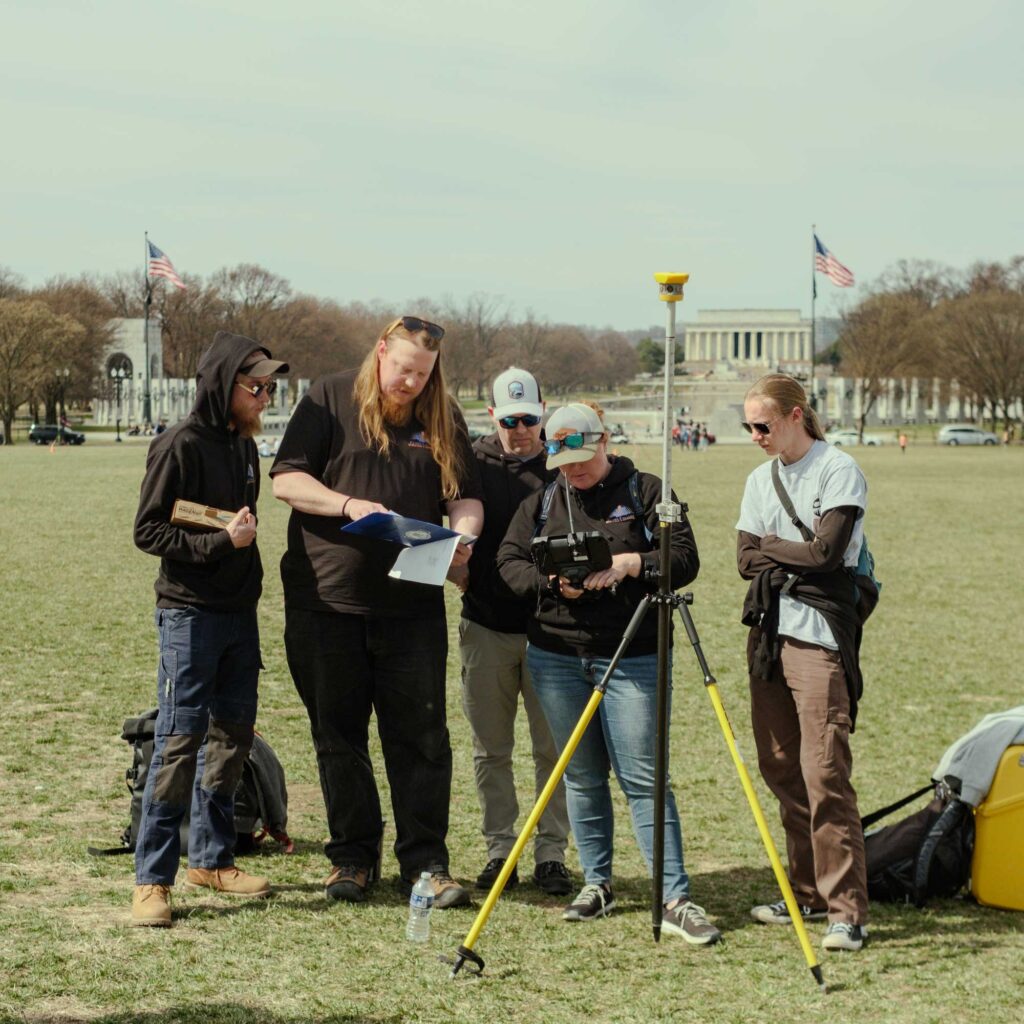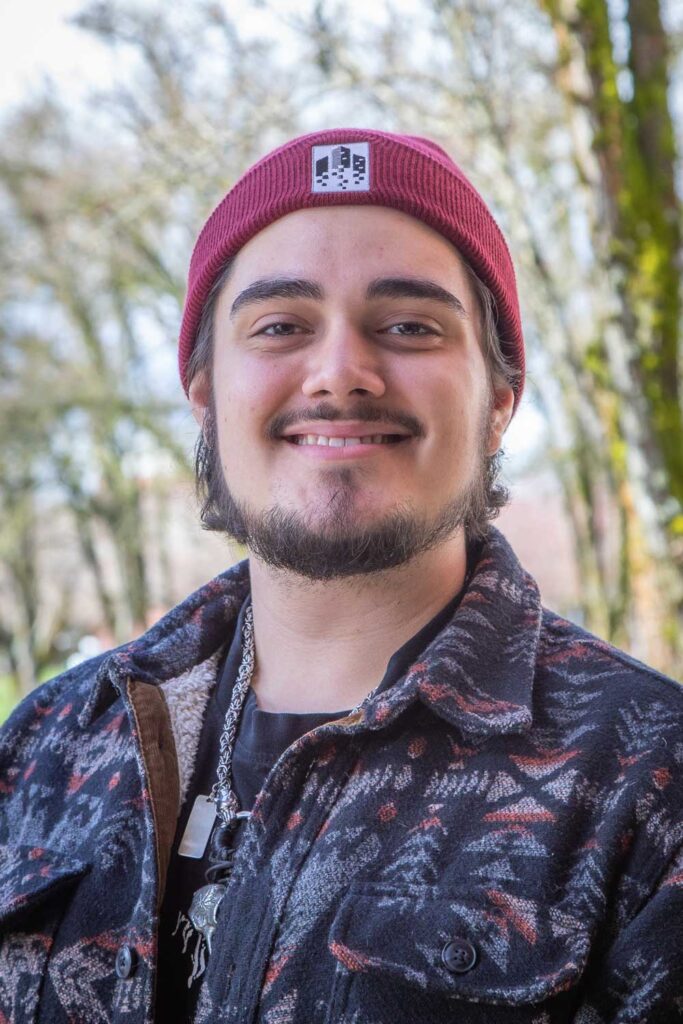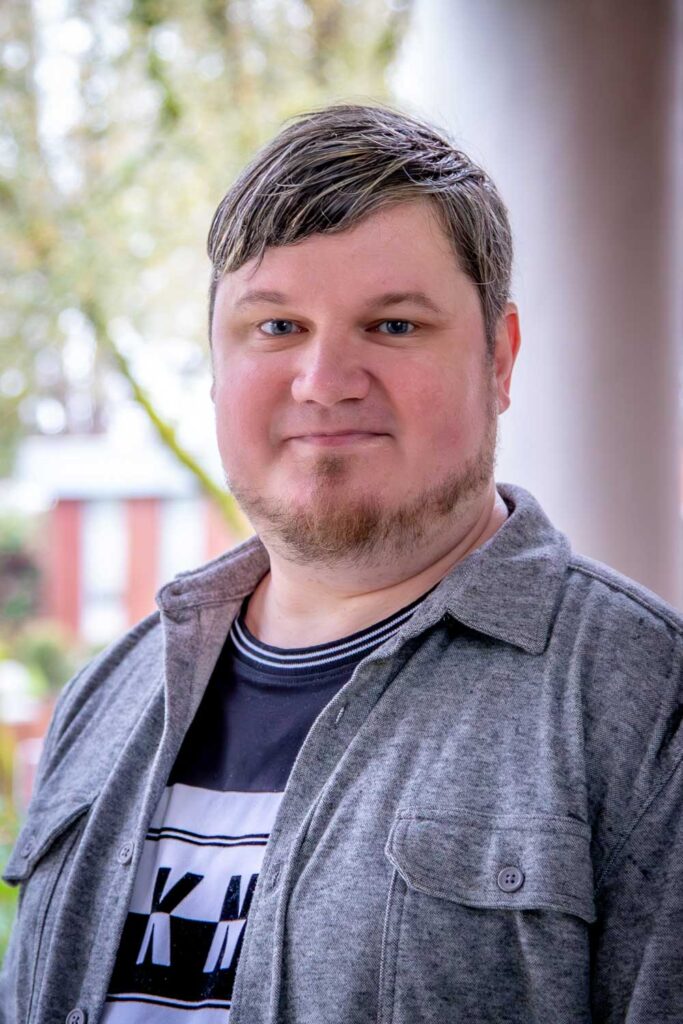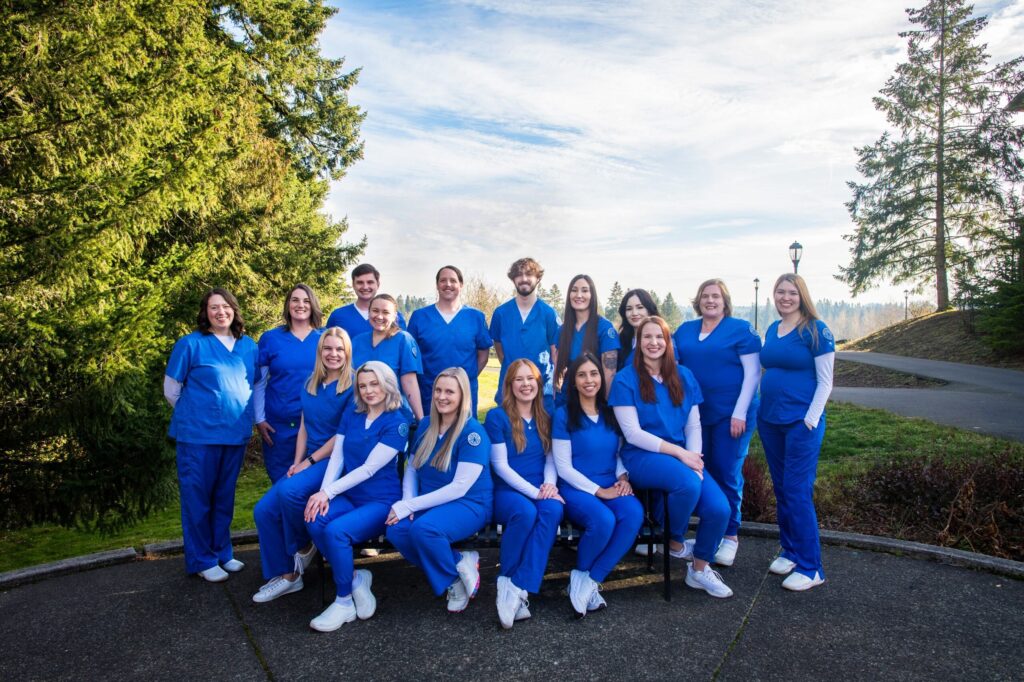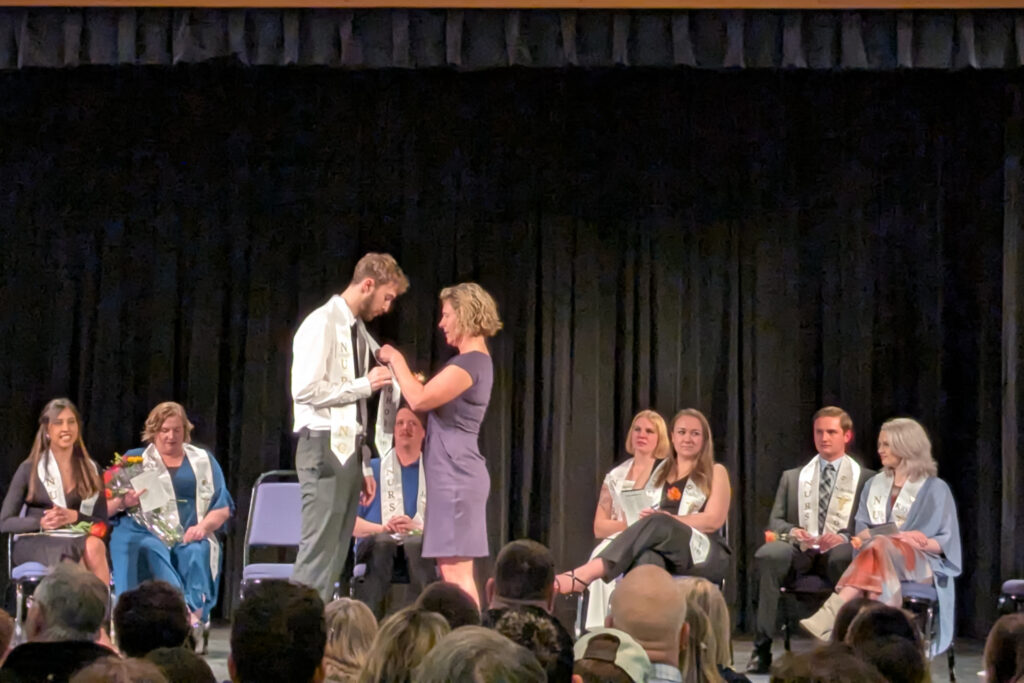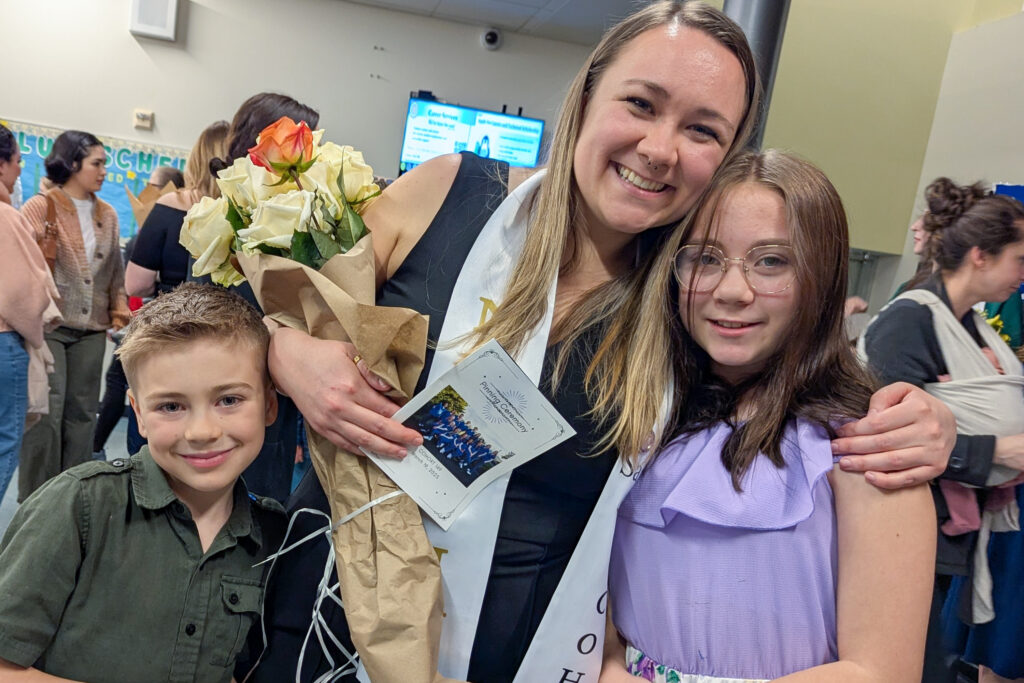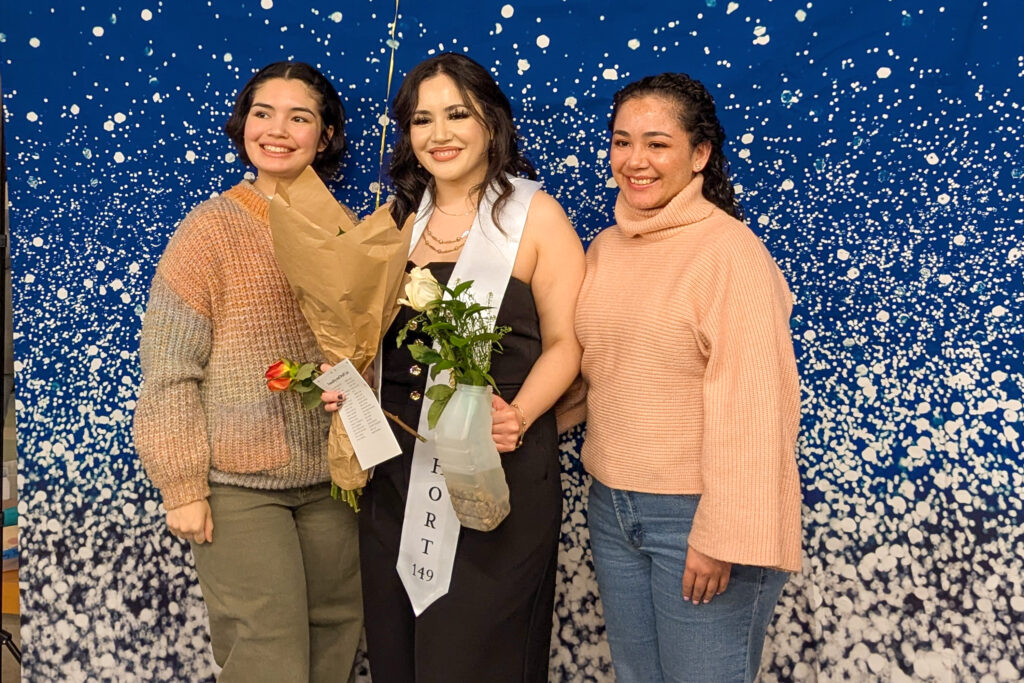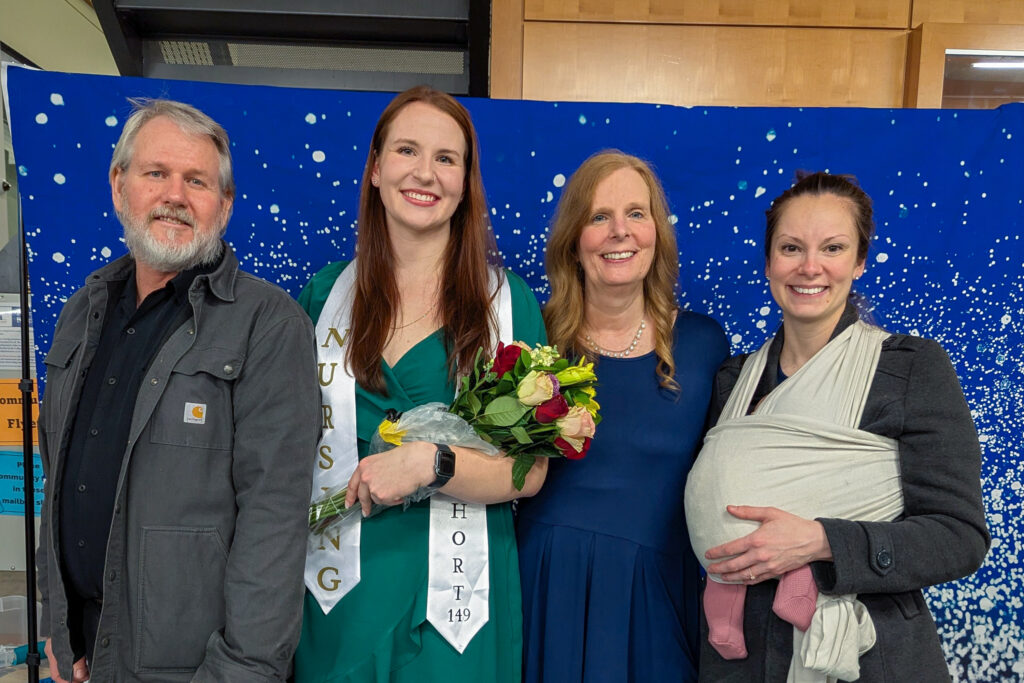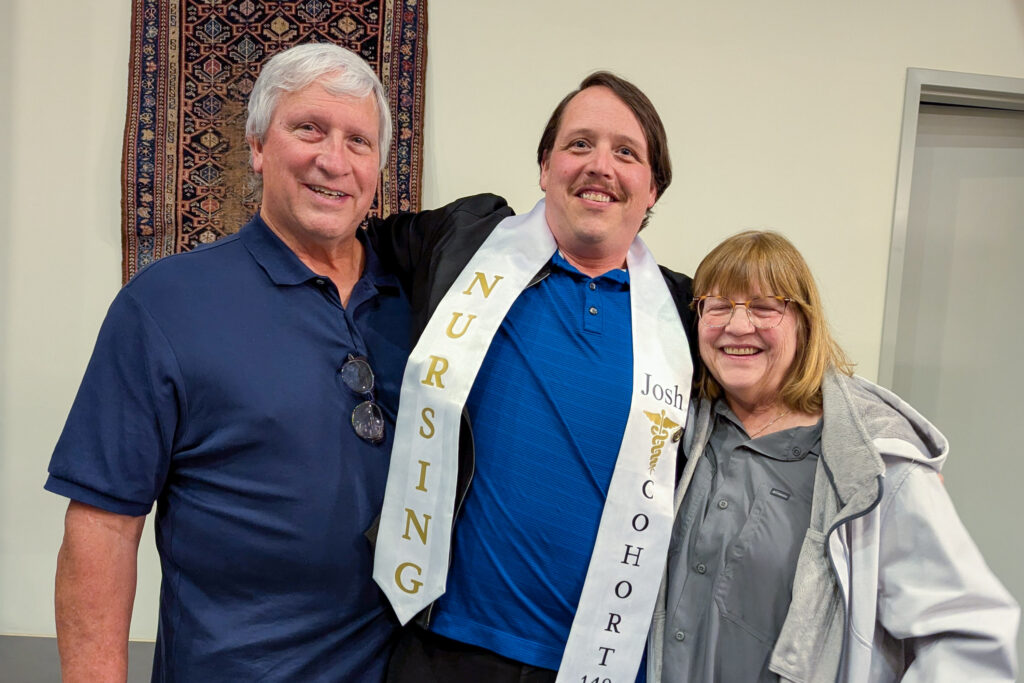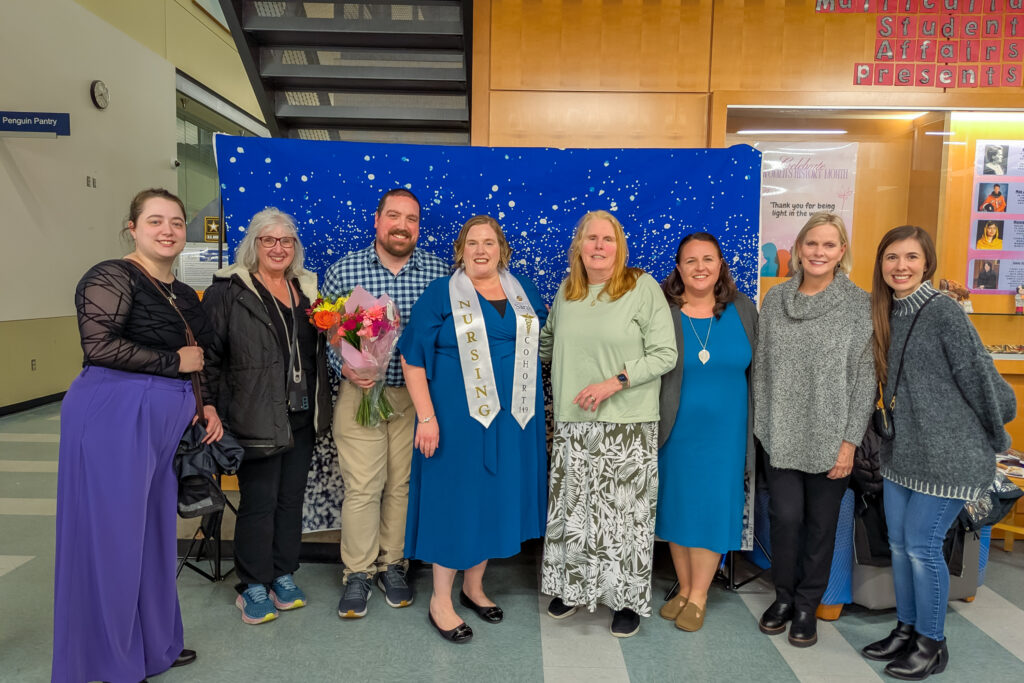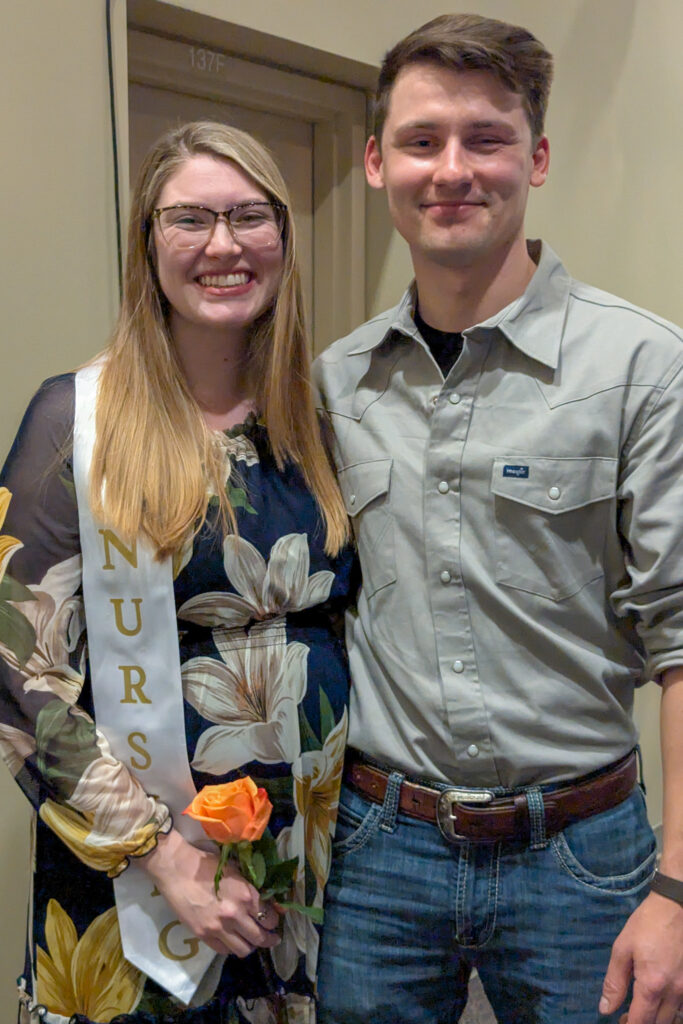2025 Creative Writing Festival
Clark’s Fourth Annual Creative Writing Festival brought together writers and readers from across the community to celebrate the written word. This week-long event was curated by the Creative Writing and English Department’s faculty, and it included a variety of opportunities for attendees to engage with the literary community. From author readings, book release parties, creative yoga classes, and culminating in the day-long Spring Writers Workshop, the festival inspired participants to fearlessly share their own stories.
Celebrating The Swift Literary Journal, Issue No. 3
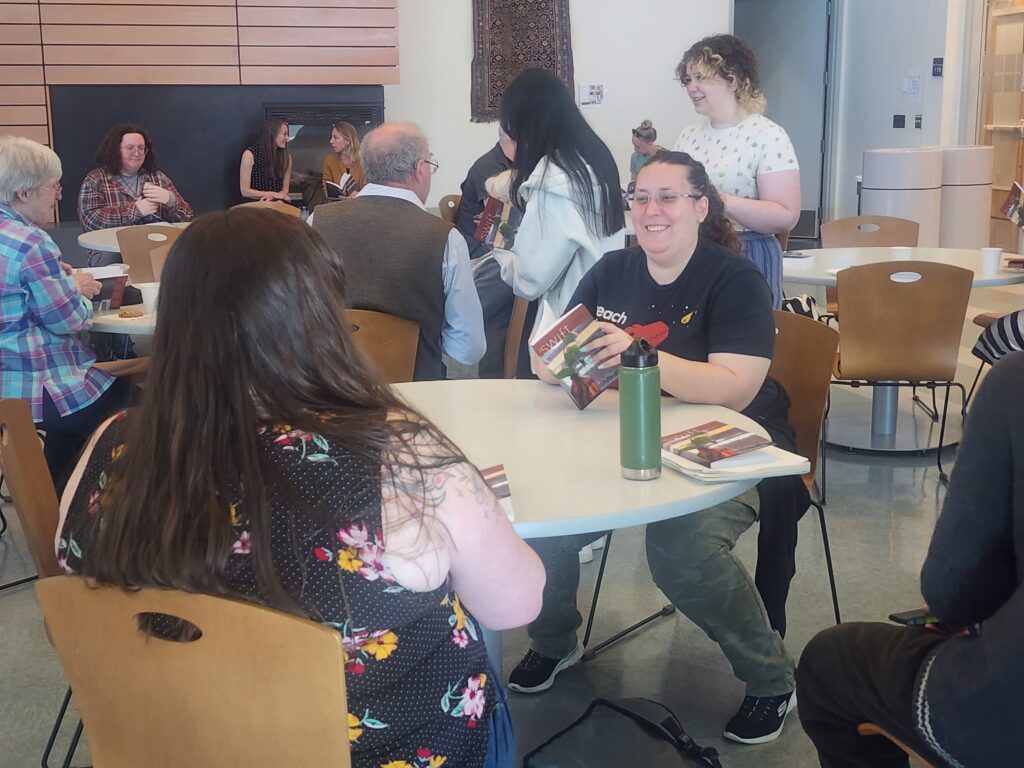
“I always love a good story,” someone said as they opened the newest edition of The Swift, Clark College’s literary journal.
Some attendees at The Swift’s release party had found a seat and started reading the journal, while others chatted excitedly. It was an encouraging space for writers to showcase their creativity, as the contributing authors mingled with staff members, families, students, and alumni who came together to celebrate their hard work.

“Thank you for allowing us to publish your work,” Professor Dawn Knopf, an English Department faculty member addressed the authors in her introduction. “It’s an extraordinary issue, and we’re so proud of you.”
Authors took turns at the podium, reading excerpts of their work, which spanned genres – fiction, memoir, poetry, and essays.
The first author to read was student Shylee Greene, the only contributor to have work published in each of the three issues of The Swift. She read her poem, Hurt You to Stay.
Submissions for The Swift are also open to faculty and alumni. One alumnus, Tom Darby, was welcomed to the podium with loud applause before he shared an excerpt from his travel momoir about his time in Morocco in the 1970’s.
The entire publication was spearheaded by students—the photo used as the cover art was taken by one of the student contributors, Faith Hay, and the editors were students, Sean Gentry, Lizeth Hernandez, Samantha Phan, and Stephanie Wagner.
Staff members who missed the event can pick up a free copy of The Swift outside of the Creative Writing suite in Hanna Hall.
And the Award Goes To…
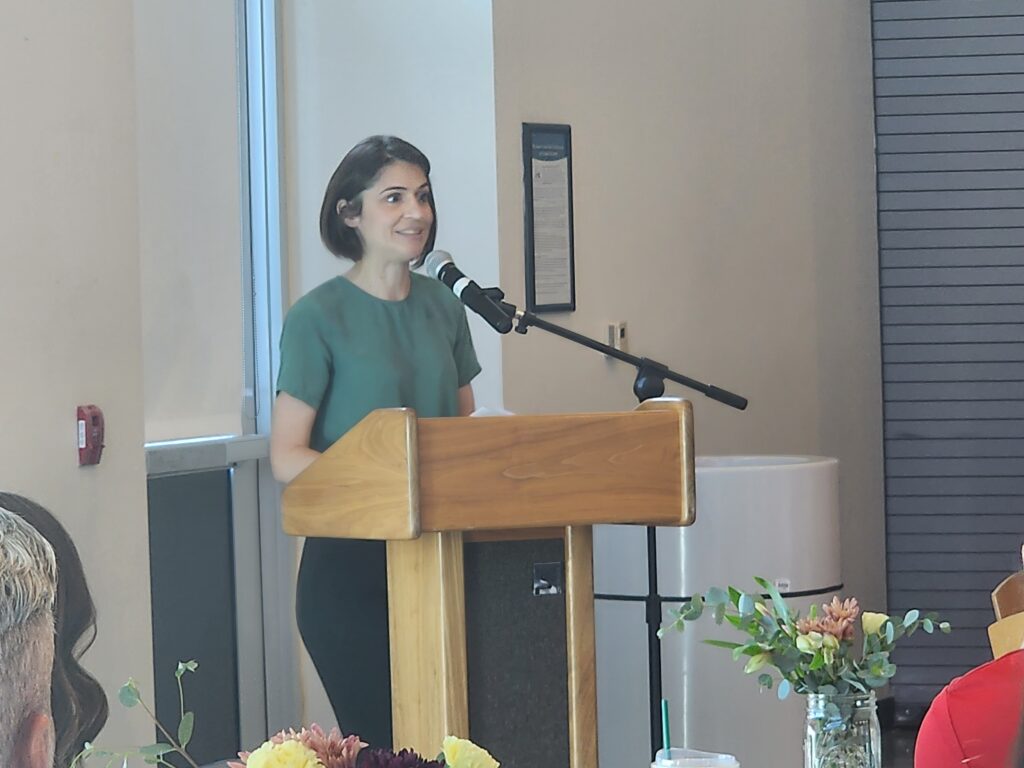
The 2025 Hawkins-Gallivan-Bostwick Awards for Excellence in Writing were presented during this year’s Creative Writing Festival. First through third place winners were announced for each category, including fiction, poetry, essays, analyses, and technical writing.
Professors introduced their students, emphasizing the talent and skill that the students displayed in their work. Students were then invited to read an excerpt of their work. Pieces addressed a variety of topics, such as religion, foster care, women’s rights in Algeria, and creative guides to crafting genre fiction. Regardless of genre, authors enchanted audience members with the way they weaved their stories, combining detail, structure, and flow to engage any reader.
“Writing has always been about community for me,” shared Dr. Jesse Morse during his introduction of one of the winners. “It’s something that can carry you through life.”
This event echoed Dr. Morse’s words, as faculty, staff, families, and fellow students came together to celebrate these students.
Coyote & Bear Discuss Modern Art
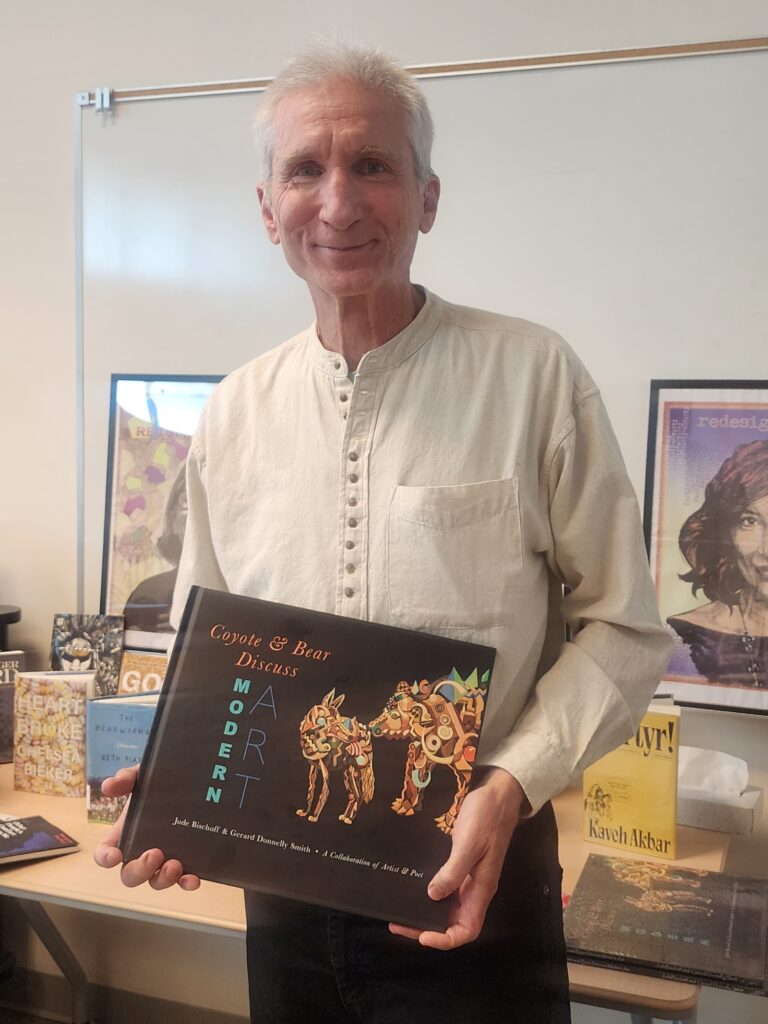
Faculty member Dr. Gerry Smith celebrated the release of his newest poetry collection, Coyote & Bear Discuss Modern Art, with a reading that highlighted the collaborative spirit behind the book.
He began with a personal story about how he met the artist who illustrated the collection and how their friendship quickly grew into a creative partnership. For the project, the artist would first send an illustration – each one titled – then Dr. Smith would create a poem inspired by his interpretation of the image. In some cases, his poems directly incorporated visual elements from the artwork. In others, the illustration sets the scene for the poem.
He then read a selection of poems while displaying the artwork that inspired each one. The titles of the poems matched those of the illustrations.
Each poem varied in tone, style, and perspective. Some played with the line structure to reflect the movement in the piece. Observant readers could spot recurring motifs, including the color blue and nods to Pittsburgh and the steel industry. One poem reimagined the iconic painting, American Gothic, envisioning what experiences the daughter of its infamous subjects might have.
The collection is a testament to artistic dialogue – two creators inspiring one another through the unique push and pull of their respective mediums. Dr. Smith noted that this isn’t his first artistic collaboration, and he encouraged aspiring poets to seek out similar partnerships to deepen their own creative work.
Festival Highlights
The Creative Writing Festival also offered participants the opportunity to engage with authors and hone their own craft.
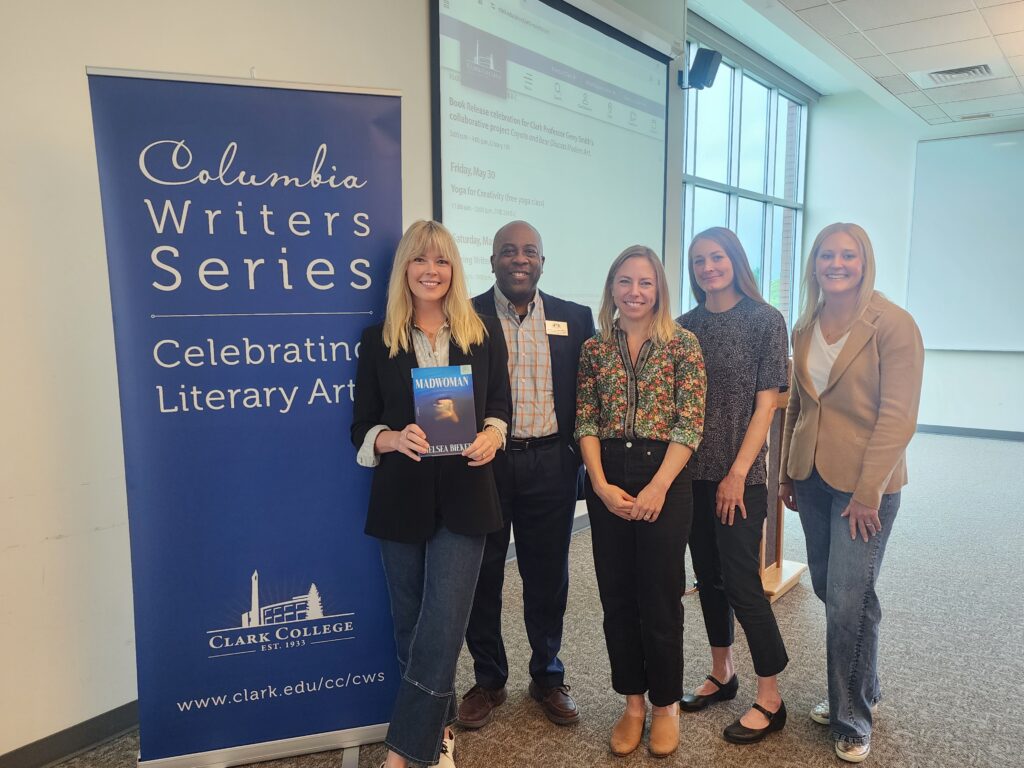
- Chelsea Bieker, author of the national bestseller Madwoman, concluded this year’s Columbia Writers Series with a reading and discussion. She offered practical advice on various aspects of the writing process, including point of view, plotting, revision, and handling rejection. She reminded attendees that while their work may not resonate with everyone, the right audience will find them eventually.
- Bestselling local author Emiko Jean opened the festival with a reading from The Return of Ellie Black, followed by a talk on hope, persistence, and the writing process. She spoke about the Pacific Northwest’s influence on her work, answered audience questions, and encouraged aspiring writers to embrace failure as part of the journey.
- Participants engaged their entire bodies in the process of being creative in a Yoga for Creativity class.
- The 2025 Spring Writing Workshop, themed “Ghost in the Machine,” concluded Clark College’s Creative Writing Festival with a full day of interactive sessions led by acclaimed authors and faculty members. Writers of all levels explored topics ranging from speculative fiction and memoir to poetry and visual storytelling.
Click here for a full lineup of workshops.
Learn More
Learn more about Creative Writing at Clark College, including the Columbia Writers Series returning in the fall, and submissions for The Swift Clark College Literary Journal.
Photos: Clark College/Malena Goerl
